Saturday, May 20 2023
This month we are discussing emotional wounds for our protagonists – is it important? And if so, how do we help our heroes and heroines overcome the wounds and heal, or learn how to cope?
xx
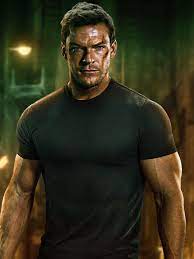 There are protagonists in some very popular novels and series that don’t appear to have any emotional wounds, or if they do, they are never mentioned. Consider Jack Reacher – ex Army, unmarried, no kids, one brother in jail and a dad in assisted living. One might consider either of those issues a wound, but Lee Child did not use them that way. Reacher seems to be a man at peace with himself and his vagabond life. His mission in life, while never stated by Reacher himself, but obvious as the series unfolds, is to get involved when someone without the ability to fix things is being hurt in some way by forces stronger than themselves. And in spite of the mayhem he often leaves in his wake, he somehow avoids getting into trouble with the law. And devotees to the series love Jack Reacher, whether in the books written by Child or on the TV series featuring Alan Ritchson. There are protagonists in some very popular novels and series that don’t appear to have any emotional wounds, or if they do, they are never mentioned. Consider Jack Reacher – ex Army, unmarried, no kids, one brother in jail and a dad in assisted living. One might consider either of those issues a wound, but Lee Child did not use them that way. Reacher seems to be a man at peace with himself and his vagabond life. His mission in life, while never stated by Reacher himself, but obvious as the series unfolds, is to get involved when someone without the ability to fix things is being hurt in some way by forces stronger than themselves. And in spite of the mayhem he often leaves in his wake, he somehow avoids getting into trouble with the law. And devotees to the series love Jack Reacher, whether in the books written by Child or on the TV series featuring Alan Ritchson.
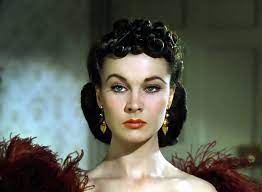 But not all heroes or heroines are so fortunate. And it is, in fact, the emotional baggage they bring to the stories that make them memorable or loveable. Even Scarlet O’Hara had her issues, in love with another woman’s husband and unable to appreciate the love and forbearance of Rhett Butler, who, in the end declares, “Frankly, my Dear, I don’t give a damn.” While Scarlett’s personality is such that she’s a hard woman to love, she is very real and relatable. And everyone can relate to Rhett who gave her everything, but found it wasn’t enough. But not all heroes or heroines are so fortunate. And it is, in fact, the emotional baggage they bring to the stories that make them memorable or loveable. Even Scarlet O’Hara had her issues, in love with another woman’s husband and unable to appreciate the love and forbearance of Rhett Butler, who, in the end declares, “Frankly, my Dear, I don’t give a damn.” While Scarlett’s personality is such that she’s a hard woman to love, she is very real and relatable. And everyone can relate to Rhett who gave her everything, but found it wasn’t enough.
xx
 For most readers, it’s the emotional wounds that make us care about the characters. The kid from the wrong side of town, from a dysfunctional family, who desperately wants to be like everyone else. Or the woman who was abused by a family member and has to overcome that to find love as an adult. The veteran who put his life on the line and comes home to cope with PTSD, his wife and kids, all are victims of an emotional wound that has to be faced and lived with before life can be good again. Some wounds are huge. Some smaller but still affect the lives of those who live with them. For most readers, it’s the emotional wounds that make us care about the characters. The kid from the wrong side of town, from a dysfunctional family, who desperately wants to be like everyone else. Or the woman who was abused by a family member and has to overcome that to find love as an adult. The veteran who put his life on the line and comes home to cope with PTSD, his wife and kids, all are victims of an emotional wound that has to be faced and lived with before life can be good again. Some wounds are huge. Some smaller but still affect the lives of those who live with them.
xx
 When I was a small child, our family had dinner with a relative and on the way home, we were passed by several emergency vehicles, sirens blaring, lights flashing. Then we saw the orange glow in the sky and my dad, always fascinated by the heroism and activity of firemen, followed to see what he could see. Imagine my five-year-old horror at the sight of a house with flames surging from the windows and billows of smoke rising into an evening sky brightly lit by the awful fire. Might not seem much like an emotional wound but I had nightmares for years about my own home going up in flames while I slept at night. Now how might I use such an experience for a protagonist of my own? Perhaps it was a woman who fell in love with a fireman – talk about conflict and adding anxiety she would have to learn how to overcome to make a life with that man. When I was a small child, our family had dinner with a relative and on the way home, we were passed by several emergency vehicles, sirens blaring, lights flashing. Then we saw the orange glow in the sky and my dad, always fascinated by the heroism and activity of firemen, followed to see what he could see. Imagine my five-year-old horror at the sight of a house with flames surging from the windows and billows of smoke rising into an evening sky brightly lit by the awful fire. Might not seem much like an emotional wound but I had nightmares for years about my own home going up in flames while I slept at night. Now how might I use such an experience for a protagonist of my own? Perhaps it was a woman who fell in love with a fireman – talk about conflict and adding anxiety she would have to learn how to overcome to make a life with that man.
xx
 There are dozens of wounds that our protagonists can have. One of the resources I have on my desk is The Emotional Wound Thesaurus – A Writer’s Guide to Psychological Trauma. It has over 100 traumas that people experience and live with including examples from crime and victimization, disabilities and disfigurements, failures and mistakes, injustice and hardship, betrayal, childhood wounds and traumatic events. It’s an amazing resource whether you are creating a character and plot from the beginning or have a basic plot but are looking for a monkey wrench to throw into your protagonist’s life and ability to get to his or her goal. There are dozens of wounds that our protagonists can have. One of the resources I have on my desk is The Emotional Wound Thesaurus – A Writer’s Guide to Psychological Trauma. It has over 100 traumas that people experience and live with including examples from crime and victimization, disabilities and disfigurements, failures and mistakes, injustice and hardship, betrayal, childhood wounds and traumatic events. It’s an amazing resource whether you are creating a character and plot from the beginning or have a basic plot but are looking for a monkey wrench to throw into your protagonist’s life and ability to get to his or her goal.
xx
 Not very many people reach adulthood without some struggle as a kid and most of us don’t get through life without running into trauma of one kind or another. Everyday things like being rear-ended and sent to the hospital which has you scared every time a car gets too close, too fast for years afterward. Not so common like a miscarriage, or being stood up at the altar. Or passed over for a well-deserved promotion at work. Or the really awful ones like losing someone you love in a horrible accident, being raped, living through a plane crash, losing everything you have and ending up on the street. The one thing all these have in common is that as readers we can feel sympathy and want the hero or heroine to find a way to overcome. And that makes readers keep turning pages because they want to experience a happy ending along with the protagonist. And isn’t that what we as authors are shooting for? Not very many people reach adulthood without some struggle as a kid and most of us don’t get through life without running into trauma of one kind or another. Everyday things like being rear-ended and sent to the hospital which has you scared every time a car gets too close, too fast for years afterward. Not so common like a miscarriage, or being stood up at the altar. Or passed over for a well-deserved promotion at work. Or the really awful ones like losing someone you love in a horrible accident, being raped, living through a plane crash, losing everything you have and ending up on the street. The one thing all these have in common is that as readers we can feel sympathy and want the hero or heroine to find a way to overcome. And that makes readers keep turning pages because they want to experience a happy ending along with the protagonist. And isn’t that what we as authors are shooting for?
xx
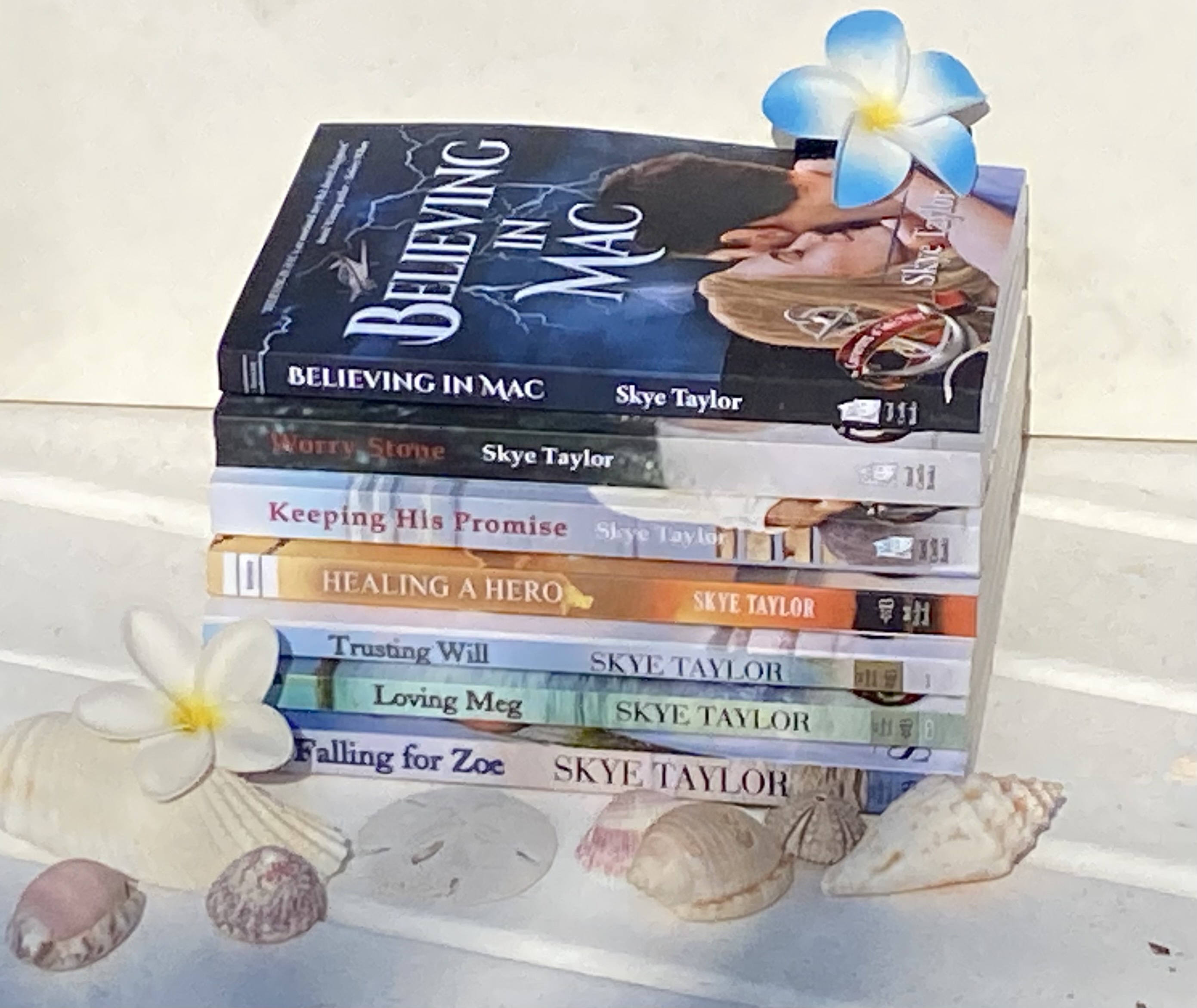 In my romance series I've got a hero and heroine in Healing a Hero who fell in love but due to events beyond their control were separated in such a way that both felt the other had abandoned their relationship and here they are 14 years later, both dealing with that betrayal in spite of being drawn together just as strongly as before. In Loving Meg, my heroine is the one who went to war and comes home to deal with the guilt and trauma and it is the persistent presence of a dog who is also coping with the loss of his police handler who helps her to open up and heal. Falling for Zoe features a heroine who got pregnant but the man she thought loved her wanted no part of having a child or even continuing their relationship. It's a romance though, so she ends up falling in love with a man who already has too many women in his life, but he's the perfect guy to help her make her life whole again. My heroine in Trusting Will is the widow of a soldier and is fearful of giving her heart to another man who puts his life on the line every day as a law enforcement officer. She has to learn that not letting herself love a man is more isolating and painful than taking a chance on love again. In my general fiction, The Candidate, Matt Steele finds himself dealing with the long buried trauma of war years later in the midst of a political campaign for the White House and it is in going back to the emotions and memories he wanted to bury forever that brings understanding and healing. Even in my murder mystery, Bullseye, my heroine, the only female detective on the major crimes squad, is good at her job, but copes with fellow detectives who feel she belongs on patrol, a husband who left her for a younger woman and a teenage daughter who thinks mom knows nothing. All of these traumas are what make my heroes and heroines someone my readers care about and want to see them overcome the obstacles in their lives. In my romance series I've got a hero and heroine in Healing a Hero who fell in love but due to events beyond their control were separated in such a way that both felt the other had abandoned their relationship and here they are 14 years later, both dealing with that betrayal in spite of being drawn together just as strongly as before. In Loving Meg, my heroine is the one who went to war and comes home to deal with the guilt and trauma and it is the persistent presence of a dog who is also coping with the loss of his police handler who helps her to open up and heal. Falling for Zoe features a heroine who got pregnant but the man she thought loved her wanted no part of having a child or even continuing their relationship. It's a romance though, so she ends up falling in love with a man who already has too many women in his life, but he's the perfect guy to help her make her life whole again. My heroine in Trusting Will is the widow of a soldier and is fearful of giving her heart to another man who puts his life on the line every day as a law enforcement officer. She has to learn that not letting herself love a man is more isolating and painful than taking a chance on love again. In my general fiction, The Candidate, Matt Steele finds himself dealing with the long buried trauma of war years later in the midst of a political campaign for the White House and it is in going back to the emotions and memories he wanted to bury forever that brings understanding and healing. Even in my murder mystery, Bullseye, my heroine, the only female detective on the major crimes squad, is good at her job, but copes with fellow detectives who feel she belongs on patrol, a husband who left her for a younger woman and a teenage daughter who thinks mom knows nothing. All of these traumas are what make my heroes and heroines someone my readers care about and want to see them overcome the obstacles in their lives.
XX
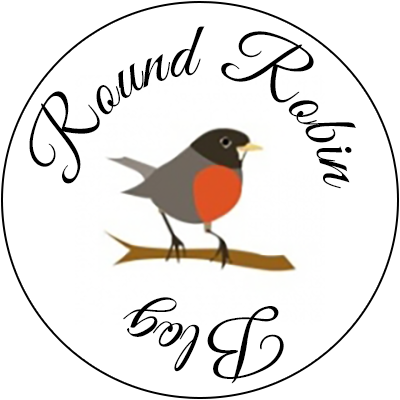 Check out my fellow Round Robin Bloggers for their take on the topic of the month. Check out my fellow Round Robin Bloggers for their take on the topic of the month.
XX
Connie Vines
Dr. Bob Rich
Fiona McGier
Marci Baun
Victoria Chatham
Saturday, April 22 2023
Breathing Life into your Characters
 XX XX
April is here and things are blooming everywhere, so, our Round Robin Blog Hoppers are discussing how they make their characters to spring into life.
XX
With a few rare exceptions where the action is the WHOLE story, it’s the characters that draw me into a good book and keep me turning pages. I want to become invested in the people between the pages. I want to cheer them on, cry with them, care about their relationships and lives. And I want them to be happy and satisfied with the outcome on the last page. But to make me care, the author has to make those characters real. Paper dolls and characters with no character, just don’t cut it.
XX
I did a workshop on this topic recently and I asked the authors attending the presentation to take a moment to think about their favorite characters from the book or TV series they loved and eagerly looked forward to every new installment. Or think about a book they’ve read at any point in their life where the main character claimed them and they’ve never forgotten the character, perhaps even years later.
XX
For me that goes back a long way. As a child I was in love with Heidi. I wanted to be Heidi. I wanted to live on that mountain with the Grandfather and Peter. I still recall how deeply I cared, so what made me care, and still remember all these years later? Because Johanna Spyri made me care about Heidi. A 5-year old orphan who is taken by her aunt to live with her reclusive grandfather far away from the village and anything she’s ever known in her short life. How could you not care about her? But she’s cheerful and friendly. She falls in love with Peter and his goats and begs to go up the mountain with them every day. A carefree lifestyle most kids who are tied to school and routine would envy. Heidi wins over the grumpy old grandfather along with her readers.
XX
Well, I’m no longer a child, and I’ve become a little more demanding in what kind of characters grab my attention and devotion. I don’t want to read about billionaires or super models without a care in the world. I’m not drawn to characters I can’t get into the hearts and minds of. An example of what draws me might be the comparison between Kensi Blye and Marty Deeks on NCIS LA.
 XX XX
Kensi is a bigger than life heroine. She is fluent in Portuguese, French, Spanish, Japanese. She knows Morse code and can lip read. She’s an ace sniper, excellent tracker. She can fix engines, plays poker, knows how to wire a house. She can and does defeat men twice her size in physical combat. In fact, she’s almost too big to be believable. But where are her flaws? Mostly she comes across as invincible.
XX
Then there’s Marty, who begins in the series as a borrowed undercover officer from LAPD. With his scruff and unkempt blond hair he looks more like a surfer than a cop or an NCIS agent. He has an almost boyish attitude and a quirky sense of humor. He gets beat up on occasion and is sometimes treated as the odd man out, which he spends a good deal of time trying to overcome. And yet – he comes across to me (the reader or TV watcher) as more believable than his partner Kensi. I find myself rooting for him far more often than for Callen or even Sam Hanna when the chase is on. And I’m only concerned about Kensi because Deeks loves her and anything that hurts her, hurts Deeks.
XX
 One heroic character that has become an international phenomenon and even if you haven’t watched the Outlander series or read the books, you may still have heard of him. Jamie Fraser. Do a brief search on social media and you’ll quickly find what drives his popularity. A short list includes: honorable, loyal, loving, faithful, passionate, romantic, brave, flawed, funny, vulnerable and the way he treats Claire. One heroic character that has become an international phenomenon and even if you haven’t watched the Outlander series or read the books, you may still have heard of him. Jamie Fraser. Do a brief search on social media and you’ll quickly find what drives his popularity. A short list includes: honorable, loyal, loving, faithful, passionate, romantic, brave, flawed, funny, vulnerable and the way he treats Claire.
He’s educated, a soldier, a laird, brother, son, and leader – and yet at the start of the first book, he is barely into his 20s. He is an outlaw wanted by the British but revered by the Scots. Personally, he is both a keen observer of those around him, fiercely loyal, and willing to be openly emotional. He is scarred, both physically (from beatings his nemesis Jack Randall loves to inflict on him) and emotional. When he falls in love with time traveler, Clair, that brings a whole new raft of vulnerabilities to what started out as a wounded, yet independent young warrior. In the author ‘s own words: “Jamie was created by a woman to be simultaneously masculine, yet vulnerable. Someone you could trust with your life and feel compelled to care for. Innocent yet wise, capable of showing emotion. Takes responsibility for his mistakes, is fiercely loyal devoted and loyal.
XX
That’s the kind of character that draws me into the story right from the start and keeps me there, eager for the next chapter, reluctant to put the book down, and on the last page feeling as if my best friend just moved a thousand miles away.
XX
 Comedy is a whole other world. One doesn’t have to be a Kensi Blye. But still, consider over the years, what makes a comedic character of either sex compelling. It’s their FLAWS! Dick Van Dyke could trip over his own feet, or Lucille Ball who half the time had her foot in her mouth. Barney Fife who’s afraid of his own shadow. Writing comedy is a Comedy is a whole other world. One doesn’t have to be a Kensi Blye. But still, consider over the years, what makes a comedic character of either sex compelling. It’s their FLAWS! Dick Van Dyke could trip over his own feet, or Lucille Ball who half the time had her foot in her mouth. Barney Fife who’s afraid of his own shadow. Writing comedy is a  craft very different from suspense, mystery, or drama, but the characters still have to be compelling with both admirable and flawed characteristics to make them believable beyond the caricature! Think of Sheldon Cooper on the Big Bang Theory who is the so over the top Brainiac, but struggles with personal relationships and OCD tendencies. Or Sally Albright in the movie When Harry Met Sally who is equally flawed, yet captured instant attention by proving a woman could fake an orgasm that a man would never know wasn’t real – in the middle of a restaurant and embarrassing Harry completely. The fun is in the flaws as well as the strengths. In fact, neither of these characters would be compelling without their flaws. craft very different from suspense, mystery, or drama, but the characters still have to be compelling with both admirable and flawed characteristics to make them believable beyond the caricature! Think of Sheldon Cooper on the Big Bang Theory who is the so over the top Brainiac, but struggles with personal relationships and OCD tendencies. Or Sally Albright in the movie When Harry Met Sally who is equally flawed, yet captured instant attention by proving a woman could fake an orgasm that a man would never know wasn’t real – in the middle of a restaurant and embarrassing Harry completely. The fun is in the flaws as well as the strengths. In fact, neither of these characters would be compelling without their flaws.
XX
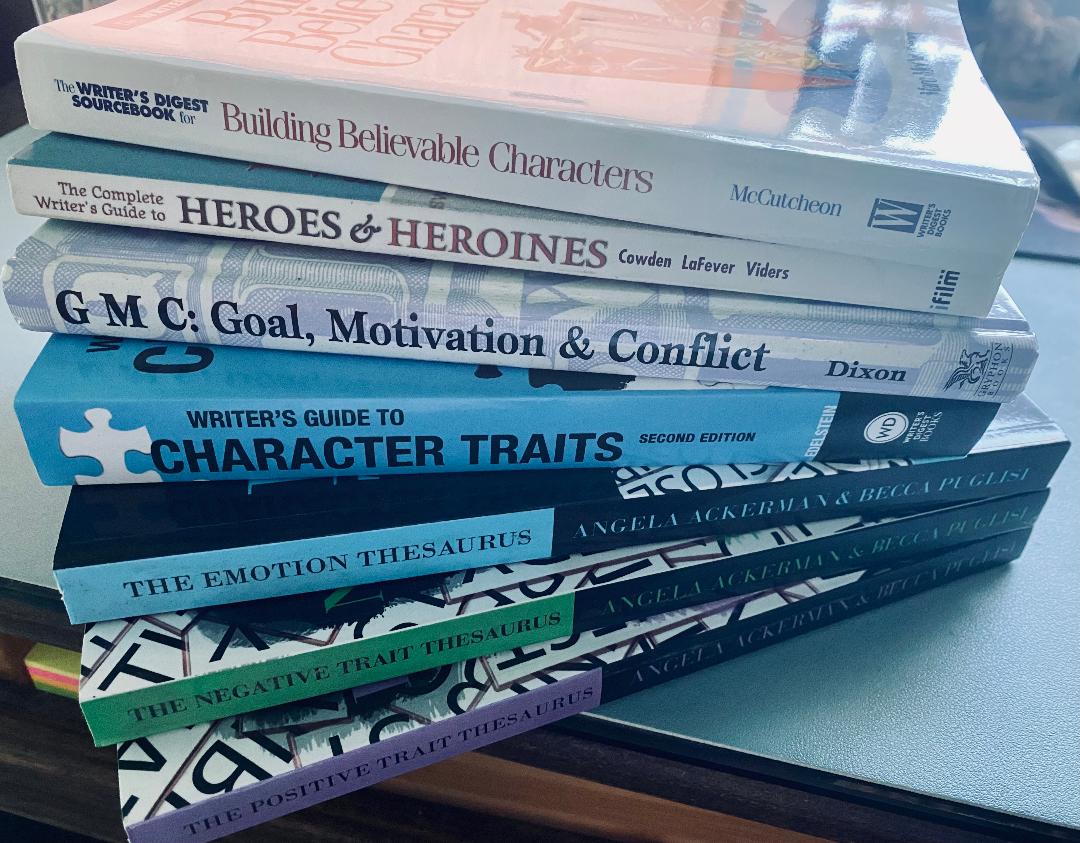 So, where do you begin to find these flaws. I have a whole shelf of books to consult, but I might start with people I know. I never copy a specific individual, but I might borrow their mannerisms, faults, habits and speech. There are people in the news with a vast array natures, behaviors and dispositions I’ve never encountered personally. And when there are holes still to fill, I have a whole shelf of books to consult. A series of books – The Writer’s Guide Thesauruses, that includes Character Flaws, Negative Traits, Positive Traits, Careers and Psychological Traumas. (This last one is a great way to figure out WHY your character came by his or her flaw, or what drives them to behave the way they do.) My shelf also has Heroes & Heroines – Sixteen Master Archetypes, Building Believable Characters – by Marc McCutcheon So, where do you begin to find these flaws. I have a whole shelf of books to consult, but I might start with people I know. I never copy a specific individual, but I might borrow their mannerisms, faults, habits and speech. There are people in the news with a vast array natures, behaviors and dispositions I’ve never encountered personally. And when there are holes still to fill, I have a whole shelf of books to consult. A series of books – The Writer’s Guide Thesauruses, that includes Character Flaws, Negative Traits, Positive Traits, Careers and Psychological Traumas. (This last one is a great way to figure out WHY your character came by his or her flaw, or what drives them to behave the way they do.) My shelf also has Heroes & Heroines – Sixteen Master Archetypes, Building Believable Characters – by Marc McCutcheon
Characters Emotional and Viewpoint – by Nancy Kress and Creating Character Arcs – by K. M. Weiland
XX
 That Character ARC is another important part of creating characters who resonate. Another invaluable resource is Goal, Motivation & Conflict by Debra Dixon. What does your character want? Why do they want it? And what stumbling blocks are in their way? Filling out a GMC chart for your character will help to bring their character arc into play. And it also helps to show where the weak places in your character’s make up might be. That Character ARC is another important part of creating characters who resonate. Another invaluable resource is Goal, Motivation & Conflict by Debra Dixon. What does your character want? Why do they want it? And what stumbling blocks are in their way? Filling out a GMC chart for your character will help to bring their character arc into play. And it also helps to show where the weak places in your character’s make up might be.
XXX
And don’t forget the conflict between your characters that heightens both their strengths and the weaknesses. Sheldon Cooper is surrounded by a group of friends, each with their own personality that his either clashes with or is highlighted by. And the interaction between them shows off what kind of person he is. By himself, he appears to be a super smart guy with obsessive habits, but because of the rest of the cast we see into his caring side. When he worries about Raj, or Penny, and argues with Leonard or Amy, that lets the viewer see deeper into his personality and makes him a character you can care about.
XXX
 So, how are we going to make sure our stories and characters are just as compelling? Start with the things about YOUR favorite characters that you find compelling, loveable or the opposite. You’ll probably find pretty quickly that you did not describe them physically right at the start. In fact, physical appearance might or might not change as you develop other characters. For the most part, I’m betting you wrote down things like I mentioned before about the well-known fictional characters. So, how are we going to make sure our stories and characters are just as compelling? Start with the things about YOUR favorite characters that you find compelling, loveable or the opposite. You’ll probably find pretty quickly that you did not describe them physically right at the start. In fact, physical appearance might or might not change as you develop other characters. For the most part, I’m betting you wrote down things like I mentioned before about the well-known fictional characters.
XXX
 How important is it to dig deep into secondary characters? Ask yourself, Do they serve a purpose? Do they drive the plot or are they just placeholders. Sometimes characters like the waiter shouldn’t even get a name, never mind a character outline. Unless it’s a small-town diner where the waitress knows you and everyone else in town by name. But if your secondary characters are going to move your plot or your heroine, they need to have careful thought put into them as well, emphasizing those characteristics they have that impact your main characters or the story. How important is it to dig deep into secondary characters? Ask yourself, Do they serve a purpose? Do they drive the plot or are they just placeholders. Sometimes characters like the waiter shouldn’t even get a name, never mind a character outline. Unless it’s a small-town diner where the waitress knows you and everyone else in town by name. But if your secondary characters are going to move your plot or your heroine, they need to have careful thought put into them as well, emphasizing those characteristics they have that impact your main characters or the story.
XX
 What about Villains and antagonists? A villain needs to be just as compelling as your hero to make the conflict believable. The antagonist just needs to make waves and disagree with your hero and heroine. Both are stumbling blocks. They might be unpredictable, sociopathic, narcissistic or use fear to get their way, but they MUST HAVE REASONS – Revenge, Hate, Greed, Sex, Drugs for a few examples. Allow your reader to feel some connection to your villain. Maybe they are motivated by Religion, A need to be liked or a Need for attention What about Villains and antagonists? A villain needs to be just as compelling as your hero to make the conflict believable. The antagonist just needs to make waves and disagree with your hero and heroine. Both are stumbling blocks. They might be unpredictable, sociopathic, narcissistic or use fear to get their way, but they MUST HAVE REASONS – Revenge, Hate, Greed, Sex, Drugs for a few examples. Allow your reader to feel some connection to your villain. Maybe they are motivated by Religion, A need to be liked or a Need for attention
XX
 Basic villain types include: The Classic villain (Sociopath, self-interest, Rules don’t apply to him and Not redeemable) The Supernatural villain who uses sorcery or has some special paranormal power But this villain must have a weakness like Superman’s Kryptonite. The Bond Villain who is Rich, Powerful, Larger than Life, Has a following of henchmen, Enjoys the crime or is an Egomaniac. And of course, Rivals like the Evil Twin, the Femme Fatale or the Bully. Basic villain types include: The Classic villain (Sociopath, self-interest, Rules don’t apply to him and Not redeemable) The Supernatural villain who uses sorcery or has some special paranormal power But this villain must have a weakness like Superman’s Kryptonite. The Bond Villain who is Rich, Powerful, Larger than Life, Has a following of henchmen, Enjoys the crime or is an Egomaniac. And of course, Rivals like the Evil Twin, the Femme Fatale or the Bully.
XX
The most important part of your story, unless you’re Lee Child, are the characters, so take the time to make them real, compelling, and memorable. Things to remember about ALL your characters’ flaws and strengths – there NEEDS TO BE A REASON
 XX XX
Try asking yourself how other writers have convinced you to care about your favorite characters. What did they show you about that character that made them so compelling and HOW did they show it. Backstory dumps are a huge no-no so don’t use this to tell your readers why your character is what he or she is. Find ways to show the reader in the action, in how they relate to other characters, or how they react to love, threats, sadness etc.
XX
One last hint I’ll leave you with – after you’ve created your character, pretend you are a reporter for the local paper and interview your character as if you will be writing a feature article for this Sunday’s paper. Ask the tough personal questions. Dig for dirt. Make them squirm. Make them explain their goals and why they are so important. If you know your character this well, he or she will shine in the story you are writing.
XX
Time to visit the rest of our Round Robin Authors and find out how they create great characters.
XX
 Anne Stenhouse Anne Stenhouse
Connie Vines
Diane Bator
Dr. Bob Rich
Fiona McGier
Marci Baun
Victoria Chatham
A.J. Maguire
Helena Fairfax
Judith Copek
Friday, March 17 2023
Our Round Robin Blog Hop for March is: The Importance of your character's backstory/history and how to share this with the reader.
xx
 Backstory is what gives both the characters and the plot depth and meaning. Without it, neither the author nor the reader really knows who the characters are or why the story is going where it’s going. We’ve all read books that seem totally shallow, mere vehicles for violence or sex or sometimes humor but without much character growth or story arc. But, thankfully, most authors do know their character’s backstory. So, then the question becomes how much should the author reveal? When? And how? We’ve all come across books with major info dumps, and that’s just as much of a story killer. Backstory is what gives both the characters and the plot depth and meaning. Without it, neither the author nor the reader really knows who the characters are or why the story is going where it’s going. We’ve all read books that seem totally shallow, mere vehicles for violence or sex or sometimes humor but without much character growth or story arc. But, thankfully, most authors do know their character’s backstory. So, then the question becomes how much should the author reveal? When? And how? We’ve all come across books with major info dumps, and that’s just as much of a story killer.
xx
If the author decides there is so much “important stuff” about their characters that the reader just has to know ahead of time, they often decide on a prologue. That can work both ways. Some people ignore prologues and just flip pages to chapter 1. They then miss the things that drive the character to make the decisions they make and leave the reader scratching his head wondering “why?” 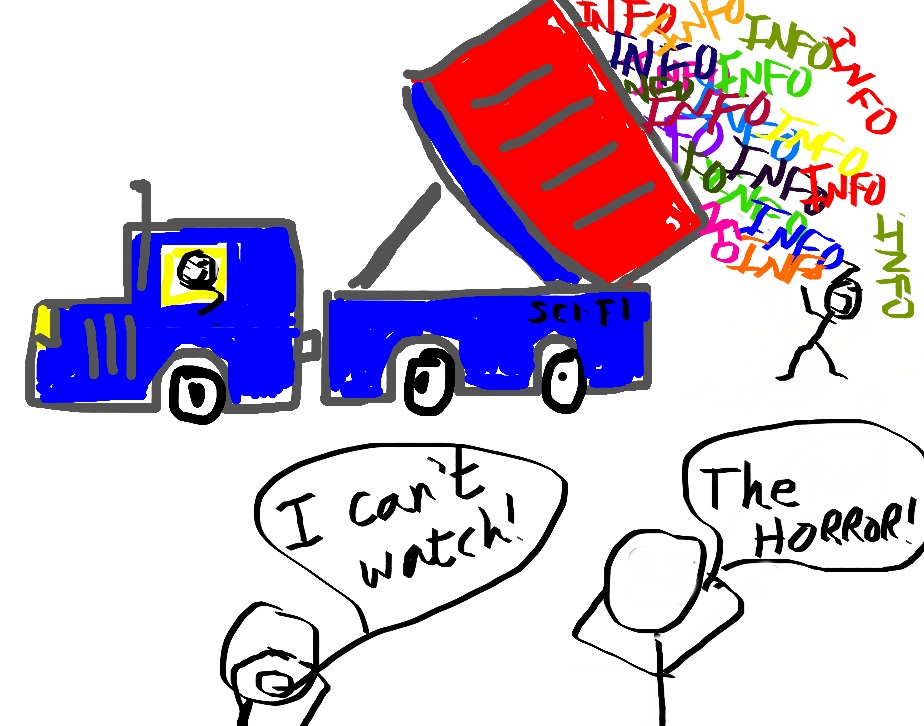 This habit also leaves the reader in the dark about the character’s growth, healing, or resolution of past issues that had been holding them back. But some editors and readers love prologues for all the information they can deliver. Your choice. This habit also leaves the reader in the dark about the character’s growth, healing, or resolution of past issues that had been holding them back. But some editors and readers love prologues for all the information they can deliver. Your choice.
xx
Another story killing option is to save it for chapter one and just lay it all out there on the first few pages or even chapters. Unfortunately this can end with the reader putting the book aside. No action, nothing happening = no hook. Even if they keep reading and finish, when they post a review it will nearly always begin with something like – “It was a good story, but it started slow.” “Or I had a hard time getting into the story.” So, not your best option.
xx
So, if prologues and info dumps are both iffy choices, how does the author tell the reader the important parts of a character’s backstory, or the events leading up to and causing the inciting incident in the plot?
 xx xx
The first thing to remember is that while you know, or should know, your characters as well as you know yourself or at least your best friend, not everything you know about them needs to appear in the story. For instance, maybe your hero had his tonsils out when he was five. Traumatic for a five-year old, especially when he’s been promised all the ice cream he wants when the surgery is over and then discovers his throat hurts so much he doesn’t want any ice cream. But your hero is now  32 and he’s a soldier or a fireman, his disappointment over the ice cream issue has no bearing on the choices he makes today and this tid-bit, however amusing, isn’t important. UNLESS – another part of the five-year-old experience was terror on waking from the anesthesia and finding a bunch of masked strangers hanging over him. And now he’s been wounded either in the theater or war, or putting his life on the line to save another human from a burning building. If he was almost immediately unconscious, now he’s going to wake up from the anesthesia with absolutely no idea where he is, who these people are or what happened to him and a flash back has him panicking again. So, maybe that five-year-old experience does make a difference. 32 and he’s a soldier or a fireman, his disappointment over the ice cream issue has no bearing on the choices he makes today and this tid-bit, however amusing, isn’t important. UNLESS – another part of the five-year-old experience was terror on waking from the anesthesia and finding a bunch of masked strangers hanging over him. And now he’s been wounded either in the theater or war, or putting his life on the line to save another human from a burning building. If he was almost immediately unconscious, now he’s going to wake up from the anesthesia with absolutely no idea where he is, who these people are or what happened to him and a flash back has him panicking again. So, maybe that five-year-old experience does make a difference.
xx
  What if your heroine’s father had been an alcoholic and now the man she has only recently met and started dating turns out to be a heavy drinker – was her father mean when he drank? Or did he just pass out in front of the TV each night? Those two different options would have an impact on decisions your heroine might make about continuing to date this guy. Maybe your protagonist had a double major in college. This could mean they are super smart, super hard working, or super determined to succeed. All three do have some input into your protagonist’s personality, drive and work ethic, but unless he’s now in a race to figure out how to stop a virulent new virus from infecting millions, his other major in biology might not be important. Certainly not important enough to discuss all the classes that were needed to follow that course of study. What if your heroine’s father had been an alcoholic and now the man she has only recently met and started dating turns out to be a heavy drinker – was her father mean when he drank? Or did he just pass out in front of the TV each night? Those two different options would have an impact on decisions your heroine might make about continuing to date this guy. Maybe your protagonist had a double major in college. This could mean they are super smart, super hard working, or super determined to succeed. All three do have some input into your protagonist’s personality, drive and work ethic, but unless he’s now in a race to figure out how to stop a virulent new virus from infecting millions, his other major in biology might not be important. Certainly not important enough to discuss all the classes that were needed to follow that course of study.
xx
So, picking and choosing the important bits from your character’s pasts aka backstory is the first step. Now the question is – how?
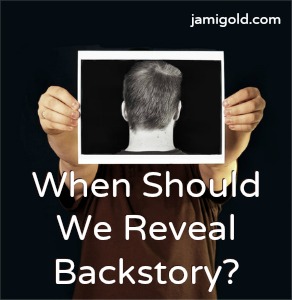
Several options. Dialog. Your double-major protagonist is reading a recently published and much discussed book on Covid and other variant viruses and another character shows up and says, “Good grief, Matt! I thought you swore you were never going to read another science book in your life.” And Matt’s response can tell the reader a bit depending on the reasons for reading it. If he is working on a task force to find out where another new virus came from, then he might say something along the lines of, “Yeah, I did say that, but those books were all about human bugs we had already conquered. And when I joined the FBI I had no plans to ever think about medicine again.” So, now you’ve told the reader he studied this in college, never planned a career in the field, as well as the career he did choose if the reader doesn’t already know that. But perhaps he’s FBI, but on a task force that has nothing to do with biology or the story. His reply might be something like, “I know, but Linda gave me this book and told me I just had to read it. So, I’m reading it.” The topic moves on, the reader knows he studied biology but it’s not critical now.
xx
 A similar way to inform the reader of the same information might be inside your character’s head. He’s digging frantically through this book, hoping to find a clue he never got from all the hundreds of books he had to read to pass his double major. Or, he’s listlessly turning pages hoping to find just enough fun facts to share with Linda so she doesn’t get pissed with him for not reading the book. This would also work with your firefighter who is slowly coming to and realizing something bad has happened. Memories of being so small he only took up half the gurney and being totally scared by all the strangers surrounding him. Only this time those strangers are anxiously working on him, monitors are beeping, everyone is intent on serious tasks, but the panic is the same. A similar way to inform the reader of the same information might be inside your character’s head. He’s digging frantically through this book, hoping to find a clue he never got from all the hundreds of books he had to read to pass his double major. Or, he’s listlessly turning pages hoping to find just enough fun facts to share with Linda so she doesn’t get pissed with him for not reading the book. This would also work with your firefighter who is slowly coming to and realizing something bad has happened. Memories of being so small he only took up half the gurney and being totally scared by all the strangers surrounding him. Only this time those strangers are anxiously working on him, monitors are beeping, everyone is intent on serious tasks, but the panic is the same.
xx
And then there’s action. Your character is involved with an activity they’ve done so many times they could do it in their sleep would give your reader a hint to your character’s back story, and this can segue into his conscious thoughts about what he’s doing, why he’s doing it and where  he learned how. What if your heroine is a nurse who has been doing rounds in a nursing home. When she comes to the old man’s bed he tries to reach out to her but his hand falls back to the sheet and his eyes seem to plead with her to understand he needs her. She’d seen that look before. When her grandfather had been failing but insisted on living out his days in his own home. Their family couldn’t afford round the clock nursing so they’d taken turns being with him. And it had been her turn the night he’d passed from this life to the next. He’d reached out to her just like that but his failing strength had caused him to miss the connection. She’d been younger then. She’d tried to guess what he needed. You need a drink. Her grandfather had shaken his head, a weak almost not there movement. She’d tried a bunch of other things. But every option she’d given him had been a similar no. So, she’d clutched at the weak, wrinkled hand, folding it into both her own with no idea what to do next. And her grandfather had sighed, his fingers trembling in hers and his mouth turned up in a small smile as he closed his eyes and his breathing faded away. All he’d needed was touch. The touch of another person in those last moments of life. So, now Jean reaches behind her and pulls a chair up to sink into as she lifts the man’s hand into her own and cradles it with warmth and caring. Now the reader knows important bits of her history as well as a lot about the kind of person she is. he learned how. What if your heroine is a nurse who has been doing rounds in a nursing home. When she comes to the old man’s bed he tries to reach out to her but his hand falls back to the sheet and his eyes seem to plead with her to understand he needs her. She’d seen that look before. When her grandfather had been failing but insisted on living out his days in his own home. Their family couldn’t afford round the clock nursing so they’d taken turns being with him. And it had been her turn the night he’d passed from this life to the next. He’d reached out to her just like that but his failing strength had caused him to miss the connection. She’d been younger then. She’d tried to guess what he needed. You need a drink. Her grandfather had shaken his head, a weak almost not there movement. She’d tried a bunch of other things. But every option she’d given him had been a similar no. So, she’d clutched at the weak, wrinkled hand, folding it into both her own with no idea what to do next. And her grandfather had sighed, his fingers trembling in hers and his mouth turned up in a small smile as he closed his eyes and his breathing faded away. All he’d needed was touch. The touch of another person in those last moments of life. So, now Jean reaches behind her and pulls a chair up to sink into as she lifts the man’s hand into her own and cradles it with warmth and caring. Now the reader knows important bits of her history as well as a lot about the kind of person she is.
xx
 There are other ways to introduce back story that are great but be careful not to overdo them. Unless you’re writing a memoir, you wouldn’t include pages from a diary or letters from the past more than a couple times in a book of fiction, but they can be a great way to tell an important story from the past that motivates the character now. There are other ways to introduce back story that are great but be careful not to overdo them. Unless you’re writing a memoir, you wouldn’t include pages from a diary or letters from the past more than a couple times in a book of fiction, but they can be a great way to tell an important story from the past that motivates the character now.
xx
A character’s reaction to something. Like seeing blue lights flashing behind him on the road. The average driver just pulls over and waits for the police car to pass. But what if your guy breaks out into a sweat. The last time he saw lights like that, it hadn’t ended well. Okay, here’ a bit of the character’s history that might need telling. Maybe in a flashback?
xx
 Dreams are another option for revealing backstory in the course of your novel. Or your heroine is having coffee with her friend and decides it’s time to tell the friend why she’d dropped out of high school before graduating. Getting pregnant had been a bombshell. Her religious belief precluded abortion. Her boyfriend turned his back on her. Her parents kicked her out of the house. So, she’d gone to live with an aunt in another state until her baby was born and put up for adoption. In the telling of this story, she can reveal not only to her friend, but to the reader, a huge chunk of her backstory that impacts the decisions she makes today. Dreams are another option for revealing backstory in the course of your novel. Or your heroine is having coffee with her friend and decides it’s time to tell the friend why she’d dropped out of high school before graduating. Getting pregnant had been a bombshell. Her religious belief precluded abortion. Her boyfriend turned his back on her. Her parents kicked her out of the house. So, she’d gone to live with an aunt in another state until her baby was born and put up for adoption. In the telling of this story, she can reveal not only to her friend, but to the reader, a huge chunk of her backstory that impacts the decisions she makes today.
xx
There are lots of ways to introduce backstory without dumping it all on the reader at the start of the story. It just takes a little patience to decide where and when. And never let it slow the current pacing of the story. One way to know if you’ve included all the important things or dumped too much after you’ve finished your first draft is to find a beta reader or three to just read. Not to critique the work, but just read and come back with comments, gut reactions, or questions. If you’re beta reader comes back with a question like, “I loved your hero Mikey, but  why on earth did he turn down that job offer?” Then you know there was backstory you were totally familiar with but failed to share in some way with the reader that was important to this decision. Another time the beta reader might suggest that the story is really confusing, or is so slow at the start that they wouldn’t have read it except they promised you they would. Now you have a hint in the first instance that there is some bit of history that needed telling that would have explained the confusing part and in the second instance, that you’ve dumped so much info at once that you dragged the action to a halt. Not every suggestion a beta reader offers needs to be incorporated but listen with an open mind. Sometimes we’ve been so close to the story as it unfolds we miss things someone with fresh eyes sees right off. While most authors are also readers, you are writing for readers so never discount what an ordinary reader might have to offer. They know what they like and enjoy and what turns them off. why on earth did he turn down that job offer?” Then you know there was backstory you were totally familiar with but failed to share in some way with the reader that was important to this decision. Another time the beta reader might suggest that the story is really confusing, or is so slow at the start that they wouldn’t have read it except they promised you they would. Now you have a hint in the first instance that there is some bit of history that needed telling that would have explained the confusing part and in the second instance, that you’ve dumped so much info at once that you dragged the action to a halt. Not every suggestion a beta reader offers needs to be incorporated but listen with an open mind. Sometimes we’ve been so close to the story as it unfolds we miss things someone with fresh eyes sees right off. While most authors are also readers, you are writing for readers so never discount what an ordinary reader might have to offer. They know what they like and enjoy and what turns them off.
xx
Thanks for taking the time to read my blog, and for a few other perspectives, visit my fellow Round Robin Blog Hoppers to see what they have to say about backstory.
xx

Connie Vines
A.J. Maguire
Dr. Bob Rich
Saturday, February 25 2023
 Our Round Robin Blog Hop this month asks the question: How can contemporary Fiction keep up with our swiftly changing world, politically, socially or technically? Or how do you keep your stories located in time? Our Round Robin Blog Hop this month asks the question: How can contemporary Fiction keep up with our swiftly changing world, politically, socially or technically? Or how do you keep your stories located in time?
XX
Sometimes, we are advised to keep our writing free of things that “date” it, and yet, this isn’t always either possible or desired. Unless you plan to never refer to any specific piece of popular music, a current TV show or movie, politician, movie star or sports hero, then you pretty much date your story with this information. Other things that can date a story that are easily overlooked are things like the mention of organic anything in the kitchen, security lines at the airport, reusable grocery bags and so much more.
XX
 Technology poses an even bigger challenge because it changes even more often than car models and fashion trends, so what is common today is gone tomorrow. I wrote a story set in 1972, not really that far in the past and yet when I depicted a harried father of an injured child asking my heroine to watch his other two kids because he was unable to reach his wife, my first beta reader asked why he didn’t just call her on her cell. I reminded my reader that cell phones did not exist in 1972. Yet, they have become so common, even for fairly young children, that not being able to reach someone is pretty much a thing of the past and even my savvy beta reader didn’t think about that. In my novel, it didn’t date the story so much as confuse the reader, but things like TVs with rabbit ears, VCRs and Game Boys do rather fix the time frame of the book. Technology poses an even bigger challenge because it changes even more often than car models and fashion trends, so what is common today is gone tomorrow. I wrote a story set in 1972, not really that far in the past and yet when I depicted a harried father of an injured child asking my heroine to watch his other two kids because he was unable to reach his wife, my first beta reader asked why he didn’t just call her on her cell. I reminded my reader that cell phones did not exist in 1972. Yet, they have become so common, even for fairly young children, that not being able to reach someone is pretty much a thing of the past and even my savvy beta reader didn’t think about that. In my novel, it didn’t date the story so much as confuse the reader, but things like TVs with rabbit ears, VCRs and Game Boys do rather fix the time frame of the book.
XX
 There are also the common reference points we have in our cultural memory. Suppose I mention that a town is like Mayberry, I’m betting there is a whole generation of young adult readers who have no idea where Mayberry is or what the reference suggests. God knows, even R2D2 or Rocky could be lost references. Says something about the permanence of Shakespeare that people still quote him. Watch an old movie or re-runs of old TV shows and note how many people smoke cigarettes. Old TV sitcoms always depicted married couples sleeping in twin beds. Not that many actually did use twin beds, but showing them sleeping together on TV was taboo. Future generations watching shows from as short a time as two years ago will wonder why there was no outward sign of the gay and lesbian lifestyle, or so few main characters of color that has suddenly appeared in just about every TV series’ casts today. There are also the common reference points we have in our cultural memory. Suppose I mention that a town is like Mayberry, I’m betting there is a whole generation of young adult readers who have no idea where Mayberry is or what the reference suggests. God knows, even R2D2 or Rocky could be lost references. Says something about the permanence of Shakespeare that people still quote him. Watch an old movie or re-runs of old TV shows and note how many people smoke cigarettes. Old TV sitcoms always depicted married couples sleeping in twin beds. Not that many actually did use twin beds, but showing them sleeping together on TV was taboo. Future generations watching shows from as short a time as two years ago will wonder why there was no outward sign of the gay and lesbian lifestyle, or so few main characters of color that has suddenly appeared in just about every TV series’ casts today.
XX
 Bottom line for me is that there is no way to avoid any hint of a general time frame in our writing. Unless you are writing Sci-fi or historical, there has to be a backdrop that makes the characters and story come alive and to avoid any specifics is to leave the page and the characters colorless. Sometimes you can re-write a scene to avoid a problem. In my example above, I removed the distraught father’s comment about not knowing where his wife was and replaced it with she was out running errands and “Taking this gang to the ER with me would be a nightmare.” So I avoided the confusing reference. There are a number of ways to avoid a time tagging reference. For instance, instead of having your character watch Gunsmoke or CSI, you could simply say they fixed a bowl of popcorn and plopped into their recliner to watch their favorite TV series. Bottom line for me is that there is no way to avoid any hint of a general time frame in our writing. Unless you are writing Sci-fi or historical, there has to be a backdrop that makes the characters and story come alive and to avoid any specifics is to leave the page and the characters colorless. Sometimes you can re-write a scene to avoid a problem. In my example above, I removed the distraught father’s comment about not knowing where his wife was and replaced it with she was out running errands and “Taking this gang to the ER with me would be a nightmare.” So I avoided the confusing reference. There are a number of ways to avoid a time tagging reference. For instance, instead of having your character watch Gunsmoke or CSI, you could simply say they fixed a bowl of popcorn and plopped into their recliner to watch their favorite TV series.
XX
But there will be times you can’t avoid or work around these issues. My advice is just write the best story ever and it won’t matter that it’s dated.  Depending on the story, you might want to find a way to tell the reader where they are and when. Easily done with a date line at the beginning of the book, or each chapter if the story moves from one time period to another. Or set the scene in the first few pages of the book with easily identifiable references. Examples might be: ‘It had only been a few years since 9/11 and people Depending on the story, you might want to find a way to tell the reader where they are and when. Easily done with a date line at the beginning of the book, or each chapter if the story moves from one time period to another. Or set the scene in the first few pages of the book with easily identifiable references. Examples might be: ‘It had only been a few years since 9/11 and people 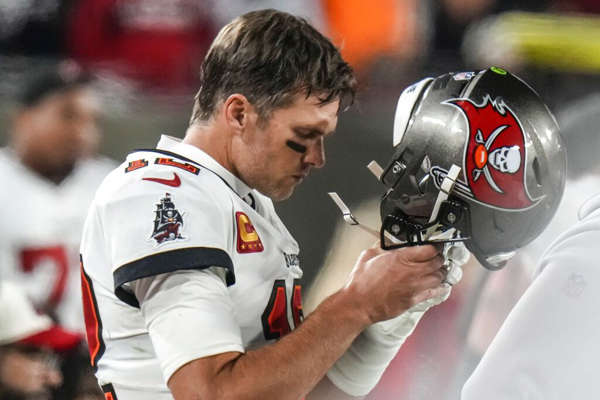 hadn’t begun to whine about long lines at the airport, yet.’ or ‘Tom Brady had finally retired, for good, and now NFL fans would have to find someone else to adore or hate.’ Even kids born since 9/11 know what that ominous number means. Not everyone is a football fan but pretty much everyone’s heard of Tom Brady and his climb to fame as the GOAT. hadn’t begun to whine about long lines at the airport, yet.’ or ‘Tom Brady had finally retired, for good, and now NFL fans would have to find someone else to adore or hate.’ Even kids born since 9/11 know what that ominous number means. Not everyone is a football fan but pretty much everyone’s heard of Tom Brady and his climb to fame as the GOAT.
XX
So, that’s my take on dating your stories. The era is part of the story, adds color and explanation to the actions of the characters and maybe we shouldn’t work so hard to avoid it. But why not hop on over and see how these other authors view the question.
XX
Victoria Chatham
Connie Vines
Dr. Bob Rich
Anne Stenhouse
Helena Fairfax
Saturday, January 21 2023
 It's a new year so, first off, Happy New Year and best wishes for 2023. And our Blog Hop topic is ... New Beginnings! Appropriate, right? As a writer, how do you motivate yourself to get back to writing when life has interrupted your flow and/or, how do you begin a new writing challenge? It's a new year so, first off, Happy New Year and best wishes for 2023. And our Blog Hop topic is ... New Beginnings! Appropriate, right? As a writer, how do you motivate yourself to get back to writing when life has interrupted your flow and/or, how do you begin a new writing challenge?
XX
 At the moment, I’m asking myself that very question…How to get back in the groove? It’s been a couple months since I’ve done any constructive work on any of the three books currently in progress. First it was a medical issue, then it was shopping for a series of birthdays with Christmas right on the heels of that and finally travel to be with family over Christmas. So, here I am, at the start of a new year, getting back into the groove and I’m betting I’m not alone. At the moment, I’m asking myself that very question…How to get back in the groove? It’s been a couple months since I’ve done any constructive work on any of the three books currently in progress. First it was a medical issue, then it was shopping for a series of birthdays with Christmas right on the heels of that and finally travel to be with family over Christmas. So, here I am, at the start of a new year, getting back into the groove and I’m betting I’m not alone.
XX
 Years ago, a well-known, award-winning, best-selling author was the keynote speaker of a conference I’d decided to attend. She began her talk with an anecdote about her writing life. She’d been in a rut and told her husband she was having trouble concentrating because of no private writing space. She had three kids and a household to run so sitting down at the table where she had been working had become too much of a distraction. Hubby responded by renovating the space over their garage, creating a wonderful new office, Years ago, a well-known, award-winning, best-selling author was the keynote speaker of a conference I’d decided to attend. She began her talk with an anecdote about her writing life. She’d been in a rut and told her husband she was having trouble concentrating because of no private writing space. She had three kids and a household to run so sitting down at the table where she had been working had become too much of a distraction. Hubby responded by renovating the space over their garage, creating a wonderful new office, 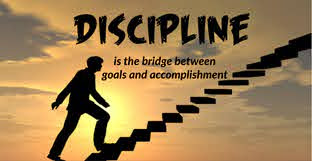 comfortable and private. Space to warm any writer’s heart. As she told the story, on her first day in this awesome new writer’s paradise, she booted up her computer and opened her document. Then checked her email. Looked at her manuscript, then played a game of solitaire or twelve. Back to looking at the book in process, then another game of solitaire or twelve and another quick check of email. Laughing at herself, she summarized this by saying, it’s a matter of discipline, not place, time, opportunity or even inspiration. But just sheer discipline. comfortable and private. Space to warm any writer’s heart. As she told the story, on her first day in this awesome new writer’s paradise, she booted up her computer and opened her document. Then checked her email. Looked at her manuscript, then played a game of solitaire or twelve. Back to looking at the book in process, then another game of solitaire or twelve and another quick check of email. Laughing at herself, she summarized this by saying, it’s a matter of discipline, not place, time, opportunity or even inspiration. But just sheer discipline.
XX
 That was years ago and now our computers offer us a zillion times more distractions from social media, email, online shopping and games of all kinds. Discipline has become even more important. Bottom line, put the butt in the chair and just “get it done” as the Nike folk say. To that end, there are several technical answers: turn off the internet being one key option. You could always delete all the apps and bookmarks to remove temptation, if disconnecting from the internet seems extreme. But bottom line, it still comes back to discipline. That was years ago and now our computers offer us a zillion times more distractions from social media, email, online shopping and games of all kinds. Discipline has become even more important. Bottom line, put the butt in the chair and just “get it done” as the Nike folk say. To that end, there are several technical answers: turn off the internet being one key option. You could always delete all the apps and bookmarks to remove temptation, if disconnecting from the internet seems extreme. But bottom line, it still comes back to discipline.
XX
 One thing I’ve found in the past is overestimating myself. I was hot – like on fire hot – when I was finishing up my last project. A thousand words, two thousand words or more a day just poured out without half trying, and it didn’t matter when I sat down to write. It was like having a tiger by the tale and all I had to do was hang on for the ride. But if things have stalled, this isn’t happening. You sit down to write and the words are hard to find. It can be discouraging to plug away and come up with far less than you had planned. All very discouraging. When this happens to me, I find setting a far more modest goal helps. We all know that positive reinforcement is encouraging so instead of expecting myself to write a thousand new words, I cut it in half. Or even in quarters. Telling yourself you’re just going to get 200 new words today sounds like a very doable task and it’s amazing how satisfying it feels to get that 200. Going way over that modest goal? AWESOME! One thing I’ve found in the past is overestimating myself. I was hot – like on fire hot – when I was finishing up my last project. A thousand words, two thousand words or more a day just poured out without half trying, and it didn’t matter when I sat down to write. It was like having a tiger by the tale and all I had to do was hang on for the ride. But if things have stalled, this isn’t happening. You sit down to write and the words are hard to find. It can be discouraging to plug away and come up with far less than you had planned. All very discouraging. When this happens to me, I find setting a far more modest goal helps. We all know that positive reinforcement is encouraging so instead of expecting myself to write a thousand new words, I cut it in half. Or even in quarters. Telling yourself you’re just going to get 200 new words today sounds like a very doable task and it’s amazing how satisfying it feels to get that 200. Going way over that modest goal? AWESOME!
XX
 Another thing to consider is timing. When is your best time to write? When are you most productive? Or, in some cases, when can you realistically expect to have an hour or even just a half hour you can focus solely on the writing. Assess your day, your other commitments, and your writing style and deliberately set aside that hour (more or less) for nothing BUT writing. Exceptions do have to be made from time to time, for various reasons, but don’t let those exceptions become the rule. Stick to your set time, put your butt in the chair, turn off the internet and start writing. Another thing to consider is timing. When is your best time to write? When are you most productive? Or, in some cases, when can you realistically expect to have an hour or even just a half hour you can focus solely on the writing. Assess your day, your other commitments, and your writing style and deliberately set aside that hour (more or less) for nothing BUT writing. Exceptions do have to be made from time to time, for various reasons, but don’t let those exceptions become the rule. Stick to your set time, put your butt in the chair, turn off the internet and start writing.
XX
 Another writer friend of mine used to do a workshop she called “You can’t edit nothing.” Sometimes we get so caught up in our words being perfect, we end up writing nothing new. We keep going over what we have and tweaking. We are so concerned about being perfect, we end up writing nothing. But, as my friend says, you can’t edit nothing – so just write. Don’t worry about perfection, coherence, repetitive stuff, or even things like character development and plot. Just write. Let the words flow. You can edit later. Another writer friend of mine used to do a workshop she called “You can’t edit nothing.” Sometimes we get so caught up in our words being perfect, we end up writing nothing new. We keep going over what we have and tweaking. We are so concerned about being perfect, we end up writing nothing. But, as my friend says, you can’t edit nothing – so just write. Don’t worry about perfection, coherence, repetitive stuff, or even things like character development and plot. Just write. Let the words flow. You can edit later.
XX
 Besides the mechanics of writing, there is also the enthusiasm - enjoying what you are doing. Sometimes we lose that and finding it again can be even more elusive. There are a few ways I find to overcome this. For me, one helper when I’m part way into a project, is to send the partial manuscript to my Kindle. Then I fix myself a cup or tea, get comfy and just start reading. When I read all the way to where I stalled I always discover a half a dozen new ideas scrambling in my head to get added to the story. Besides the mechanics of writing, there is also the enthusiasm - enjoying what you are doing. Sometimes we lose that and finding it again can be even more elusive. There are a few ways I find to overcome this. For me, one helper when I’m part way into a project, is to send the partial manuscript to my Kindle. Then I fix myself a cup or tea, get comfy and just start reading. When I read all the way to where I stalled I always discover a half a dozen new ideas scrambling in my head to get added to the story.
XX
 Another option is to discuss my story, or the problem I’m having with a willing friend. That friend doesn’t have to be a writer so long as they are willing to listen. In telling it to someone else I catch the excitement again and often, in telling it out loud, discover the problem that was keeping me from moving forward. And as a bonus, the friend often has ideas to add to my thoughts. Another option is to discuss my story, or the problem I’m having with a willing friend. That friend doesn’t have to be a writer so long as they are willing to listen. In telling it to someone else I catch the excitement again and often, in telling it out loud, discover the problem that was keeping me from moving forward. And as a bonus, the friend often has ideas to add to my thoughts.
XX
 And then there is brainstorming with my critique partner or group of writer friends. For me, it’s a four-writer group we named the Sandy Scribblers and we meet once a month. Used to be face to face in a library, but due to Covid turned into a Zoom meeting (which has the advantage of not having to go anywhere, get comfy in your own chair, have a snack or wear your Pjs.) Bouncing my stalled plot against this group is a sure-fire way to get going again. We are a very mixed group in what we write and the ideas and comments come from everywhere. Not that I end up using all the possibilities, but this kind of give and take gets the creative juices fired up. And then there is brainstorming with my critique partner or group of writer friends. For me, it’s a four-writer group we named the Sandy Scribblers and we meet once a month. Used to be face to face in a library, but due to Covid turned into a Zoom meeting (which has the advantage of not having to go anywhere, get comfy in your own chair, have a snack or wear your Pjs.) Bouncing my stalled plot against this group is a sure-fire way to get going again. We are a very mixed group in what we write and the ideas and comments come from everywhere. Not that I end up using all the possibilities, but this kind of give and take gets the creative juices fired up.
XX
 If, after trying all these avenues, my brain is still stuck, my best advice is to put that manuscript to bed, at least for a while. Try something totally different. I often have some notes I scribbled at some point about an idea I had while I were busy with another book. I dig them out and take them for a walk. A physical walk. I read my scribbled thoughts, then go for a walk and let the ideas bob around in my brain. Sometimes whole scenes will crowd into my head and I can’t wait to get home and get them typed up before I forget them. I can backtrack and do character studies and plotting later, once I’m fired up about this new project. You might have a book you wrote that was intended as a one-off but readers have asked if there will be a sequel. Think about If, after trying all these avenues, my brain is still stuck, my best advice is to put that manuscript to bed, at least for a while. Try something totally different. I often have some notes I scribbled at some point about an idea I had while I were busy with another book. I dig them out and take them for a walk. A physical walk. I read my scribbled thoughts, then go for a walk and let the ideas bob around in my brain. Sometimes whole scenes will crowd into my head and I can’t wait to get home and get them typed up before I forget them. I can backtrack and do character studies and plotting later, once I’m fired up about this new project. You might have a book you wrote that was intended as a one-off but readers have asked if there will be a sequel. Think about  it. Is there anywhere a sequel can go? Are there characters you could bring to the front of a follow-on? it. Is there anywhere a sequel can go? Are there characters you could bring to the front of a follow-on?
XX
Last, but definitely not least, sign up for a workshop or a conference. Go to a regular local writer’s meeting and take notes as the speaker digs into the topic of the day. I guarantee you will come home energized with ideas and a desire to get that butt into the chair and start writing again, whether it was the project you stalled out on or something entirely new.
XX
 Now you can hop on over and check out the rest of the Blog Hopping Crew for hints on how to get moving again: (Thanks to Marci Baun for our new logo.) Now you can hop on over and check out the rest of the Blog Hopping Crew for hints on how to get moving again: (Thanks to Marci Baun for our new logo.)
Dr. Bob Rich
Anne Graham
Connie Vines
Diane Bator
A.J. Maguire
Victoria Chatham
Fiona McGier
Marci Baun
Saturday, October 22 2022
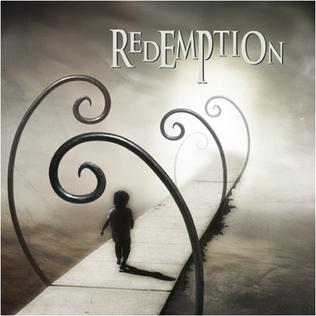 Our Round Robin Blog Hop is celebrating, if that’s the right word, its one hundredth posting with a really challenging subject: Have any of your villainous characters reached redemption for their actions? If you were going to do this (or have done it), how would (did) you go about it? Our Round Robin Blog Hop is celebrating, if that’s the right word, its one hundredth posting with a really challenging subject: Have any of your villainous characters reached redemption for their actions? If you were going to do this (or have done it), how would (did) you go about it?
XX
 My first reaction to this topic was, “I don’t have any villains I want to or have redeemed.” Mostly because the stories I’ve written have heroes and heroines who are struggling to conquer their personal demons rather than fighting the “bad guy” or some other villainous entity. But as I was getting ready to bow out, I realized I am currently in the final edits for a book with a character who actually was the source of my hero’s problems and, the reason my hero spent a year in prison for a crime he did not commit. My first reaction to this topic was, “I don’t have any villains I want to or have redeemed.” Mostly because the stories I’ve written have heroes and heroines who are struggling to conquer their personal demons rather than fighting the “bad guy” or some other villainous entity. But as I was getting ready to bow out, I realized I am currently in the final edits for a book with a character who actually was the source of my hero’s problems and, the reason my hero spent a year in prison for a crime he did not commit.
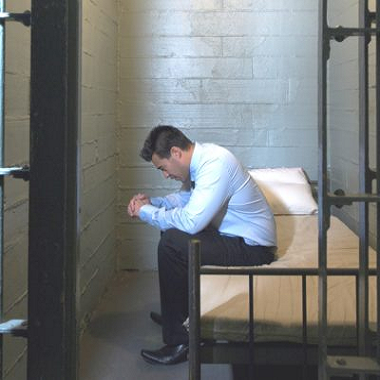 XX XX
As I thought about this character, Gino Rossi, I realized there were reasons I might want to find a way to redeem him going forward. Although this book ends with him taking the fall for the crimes he committed and managed to get blamed on my hero, that might not have to be the end of his story.
XX
 Why would I want to redeem him, you ask? He got Mac convicted of a crime he didn’t commit, got him tossed from the job he loved and ruined his reputation. So why would I want to redeem Gino? Well, for most of this book, Mac considers Gino to be his friend. They grew up together, learned to fly and shared a passion for the job they both loved piloting sight-seeing tours over their scenic shoreline and historic home-town. Mac is seriously saddened to discover his friend’s connection to his own troubles. Why would I want to redeem him, you ask? He got Mac convicted of a crime he didn’t commit, got him tossed from the job he loved and ruined his reputation. So why would I want to redeem Gino? Well, for most of this book, Mac considers Gino to be his friend. They grew up together, learned to fly and shared a passion for the job they both loved piloting sight-seeing tours over their scenic shoreline and historic home-town. Mac is seriously saddened to discover his friend’s connection to his own troubles.
XX
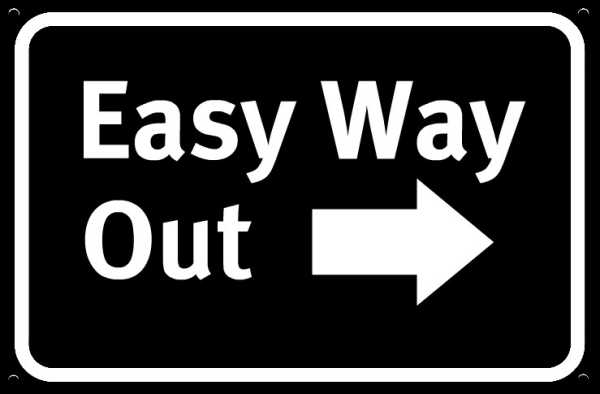 So who is Gino Rossi? He’s not an evil psychopath. He isn’t into hurting people or killing animals. He isn’t willing to do whatever it takes to get to the top no matter who gets squashed along the way. He just isn’t your average villain everyone expects to hate. My hero still sees the good in him even after the role Gino played in Mac’s troubles is finally revealed; even after a very desperate Gino tries to cause Mac’s plane to crash. So who is Gino Rossi? He’s not an evil psychopath. He isn’t into hurting people or killing animals. He isn’t willing to do whatever it takes to get to the top no matter who gets squashed along the way. He just isn’t your average villain everyone expects to hate. My hero still sees the good in him even after the role Gino played in Mac’s troubles is finally revealed; even after a very desperate Gino tries to cause Mac’s plane to crash.
XX
With that in mind, how would I rehabilitate Gino? I’m currently working on the next book in this series and this topic has given me a whole new avenue of possibilities to explore in that plot. While Mac is no longer the main character, he’s still on the  scene along with another newer friend who is the hero of this next book. Lucas Trevlyn had been a decent kid and a good soldier who’d gone astray after returning from war, gotten into trouble and ended up doing time. Lucas felt like he had nothing left to live for and was ready to end his life when an off-duty cop happened along and talked him out of it. This cop helped Lucas see a future for himself, believed in him and encouraged him to believe in himself, and Lucas got his life squared away. Now he’s the manager of a second chance house for men who are where he once was. Basically decent guys who managed to find themselves on the wrong side of the law due to a variety of poor choices and mistakes who are now trying to put their lives back together. scene along with another newer friend who is the hero of this next book. Lucas Trevlyn had been a decent kid and a good soldier who’d gone astray after returning from war, gotten into trouble and ended up doing time. Lucas felt like he had nothing left to live for and was ready to end his life when an off-duty cop happened along and talked him out of it. This cop helped Lucas see a future for himself, believed in him and encouraged him to believe in himself, and Lucas got his life squared away. Now he’s the manager of a second chance house for men who are where he once was. Basically decent guys who managed to find themselves on the wrong side of the law due to a variety of poor choices and mistakes who are now trying to put their lives back together.
XX
 Now I ask myself, ‘what if Mac and Lucas, together were able to convince Gino he was worth both their friendship and a second chance to get his life right?’ While not being a determined villain, Gino has always taken the easy way out of situations and up to now, never owned up to his own failings. Willing to sacrifice his only friend to save himself from a morass of his own making, Gino isn’t a very heroic or likeable character. Are these character flaws that can’t be redeemed? I’m convinced it would be an interesting challenge to see if I can turn Gino from an unfortunate, misdirected character into someone my readers would want to cheer for. Now I ask myself, ‘what if Mac and Lucas, together were able to convince Gino he was worth both their friendship and a second chance to get his life right?’ While not being a determined villain, Gino has always taken the easy way out of situations and up to now, never owned up to his own failings. Willing to sacrifice his only friend to save himself from a morass of his own making, Gino isn’t a very heroic or likeable character. Are these character flaws that can’t be redeemed? I’m convinced it would be an interesting challenge to see if I can turn Gino from an unfortunate, misdirected character into someone my readers would want to cheer for.
XX
Like any other failing in human nature, Gino will have to want to change. He’ll have to sink pretty low and realize change is his only  option. Mac and Lucas can be there to help, but Gino is going to have to do the heavy lifting to make himself into a hero any reader can want to follow and celebrate his success. Since, until this blog post, this was never a book I had intended to write, I don’t know if or how Gino might redeem himself, but I’m certainly going to enjoy finding out and look forward to the challenge. option. Mac and Lucas can be there to help, but Gino is going to have to do the heavy lifting to make himself into a hero any reader can want to follow and celebrate his success. Since, until this blog post, this was never a book I had intended to write, I don’t know if or how Gino might redeem himself, but I’m certainly going to enjoy finding out and look forward to the challenge.
XX
Want to see how some of my fellow blog hoppers have redeemed some of their characters? Check them out at:

Diane Bator
Judith Copek
Connie Vines
A.J. Maguire
Dr. Bob Rich
Robin Courtright
Saturday, September 24 2022
This month's Round Robin Blog asks: What do you define in your writing about your characters and what do you leave to the reader’s intuition? Is there anything you never tell about a character?
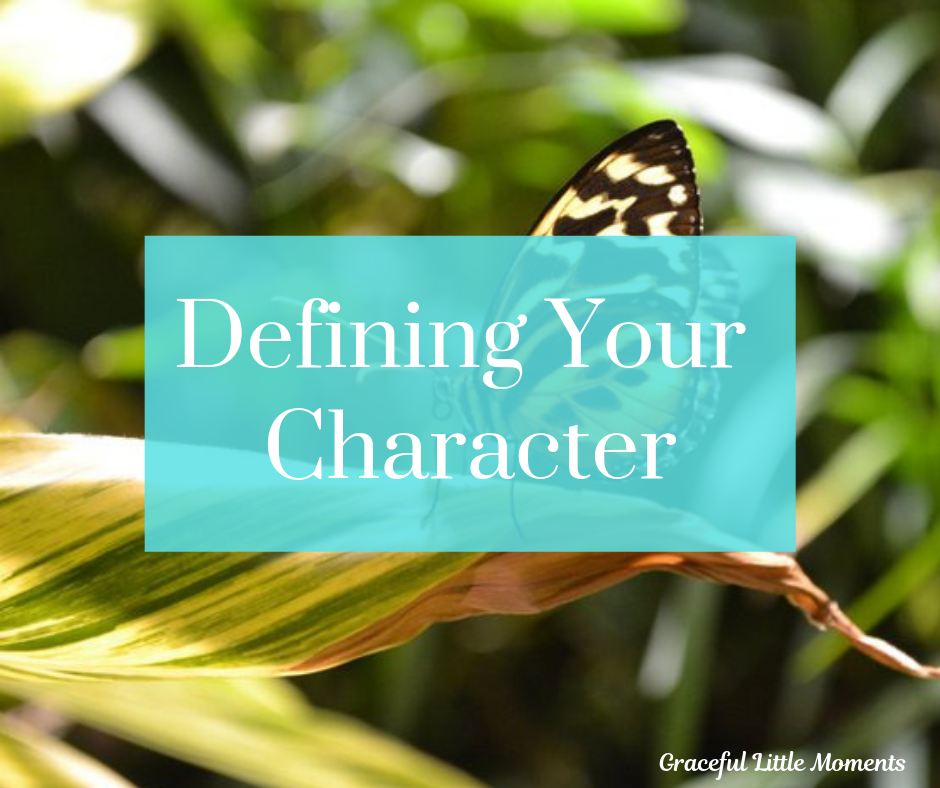 XX XX
The answer to this question depends on what we mean by define? For me, I’m going to assume that define means telling the reader what a character is like. Not necessarily what they look like but what kind of person they are. So, using this definition of define, I try NOT to define my characters but rather to show the reader what they are like.
XX
 For the obvious, rather than tell the reader that Mac had a soft spot for dogs, I show him rescuing an abandoned puppy. I follow that up with how he treated it in the days that followed, in his efforts to find the puppy’s owner, and his growing dismay to find he didn’t want to find the owner. Now the reader knows how Mac feels about dogs in general and this one in particular without me specifically defining his feelings toward the dog. For the obvious, rather than tell the reader that Mac had a soft spot for dogs, I show him rescuing an abandoned puppy. I follow that up with how he treated it in the days that followed, in his efforts to find the puppy’s owner, and his growing dismay to find he didn’t want to find the owner. Now the reader knows how Mac feels about dogs in general and this one in particular without me specifically defining his feelings toward the dog.
XX
For the less obvious, things like loyalty, chivalry, honesty, kindness, or their opposites: disloyalty, deceiving, mistreating  women or ignoring people in need, I again try to show the reader what’s in my character’s hearts by their actions. If I have my character brush angrily past an old woman fumbling with her parcels because he is in a hurry or perhaps doesn’t even notice her, then the reader gets a pretty good idea of this person’s character without me saying he was callous or rude. Just as I could have a well-dressed business woman in a hurry women or ignoring people in need, I again try to show the reader what’s in my character’s hearts by their actions. If I have my character brush angrily past an old woman fumbling with her parcels because he is in a hurry or perhaps doesn’t even notice her, then the reader gets a pretty good idea of this person’s character without me saying he was callous or rude. Just as I could have a well-dressed business woman in a hurry  for an important interview stop to help a distressed child who is obviously lost. Knowing it will mean missing the interview but stopping anyway. Now the reader has a good grasp on the type of person this woman is. Maybe she’s a mother and could relate to that child’s distress, but perhaps she’s not which makes her actions doubly revealing. The same goes for four-legged characters. One might prance eagerly, tail wagging furiously, or cower uncertainly or snarl menacingly. All show the reader what kind of dog this is, at least in this situation. for an important interview stop to help a distressed child who is obviously lost. Knowing it will mean missing the interview but stopping anyway. Now the reader has a good grasp on the type of person this woman is. Maybe she’s a mother and could relate to that child’s distress, but perhaps she’s not which makes her actions doubly revealing. The same goes for four-legged characters. One might prance eagerly, tail wagging furiously, or cower uncertainly or snarl menacingly. All show the reader what kind of dog this is, at least in this situation.
XX
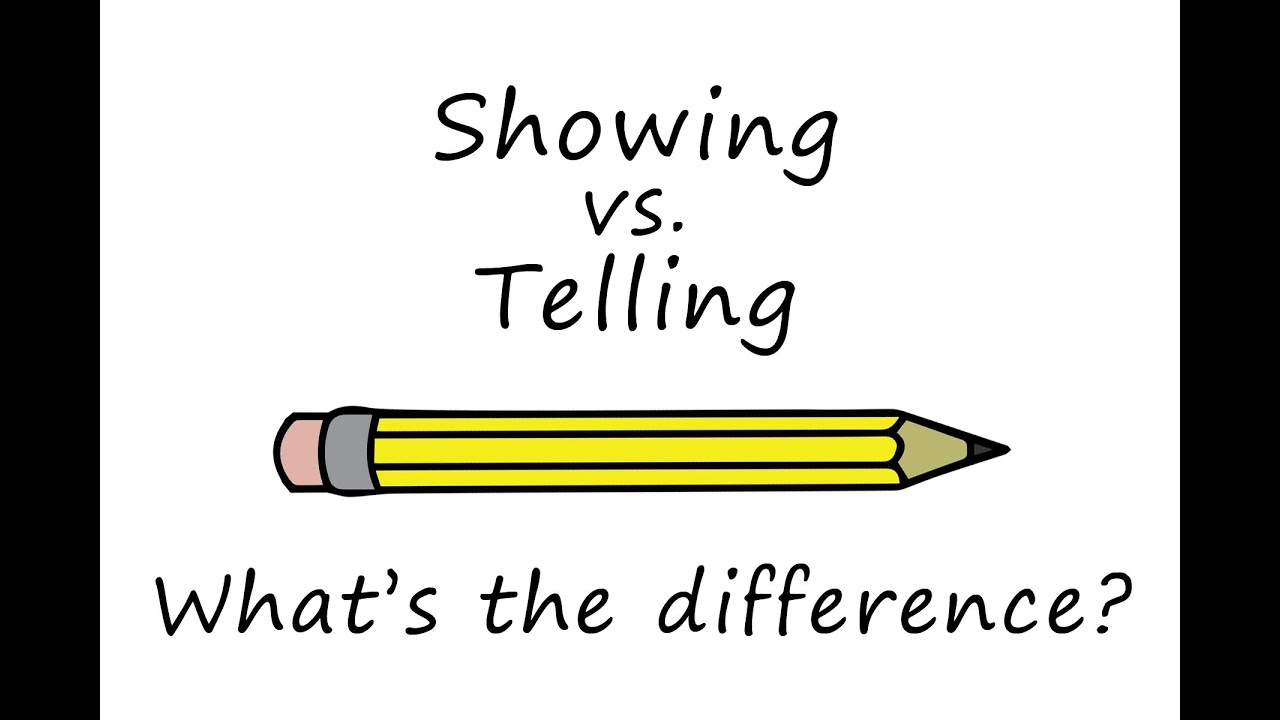 It’s a case of show rather than tell, but obviously the reader does need to know this character so they will understand why the character makes the choices they make. You might have a character which a history of abuse and it’s important for your reader to know this so they will understand why the character avoids certain people and situations. Or perhaps a character grew up dirt poor which explains It’s a case of show rather than tell, but obviously the reader does need to know this character so they will understand why the character makes the choices they make. You might have a character which a history of abuse and it’s important for your reader to know this so they will understand why the character avoids certain people and situations. Or perhaps a character grew up dirt poor which explains  his or her pinching every penny until it squeals, or having finally hit the big time doing everything possible to erase their origins – like introducing friends to their parents or taking a college friend home for the weekend. Knowing where a character comes from not only helps the reader to understand choices made, but also to feel empathy for the character, or a sense of satisfaction or triumph for a success that might have been easy for someone else but was monumental for your character. his or her pinching every penny until it squeals, or having finally hit the big time doing everything possible to erase their origins – like introducing friends to their parents or taking a college friend home for the weekend. Knowing where a character comes from not only helps the reader to understand choices made, but also to feel empathy for the character, or a sense of satisfaction or triumph for a success that might have been easy for someone else but was monumental for your character.
XX
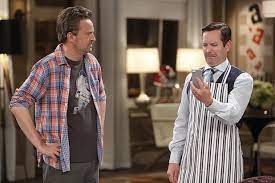 Then there are the quirks a character might have. How much better is it to show the character carefully organizing their catch-all drawer, or hurrying around behind a roommate rearranging everything the roommate tossed haphazardly as they went through the apartment, than to flat out define this character as OCD? Or the character who bites their fingernails whenever they are stressed, or cowers when lightning zaps across the sky? A good author does not need to define those quirks – just show the reader and let the reader figure it out. Then there are the quirks a character might have. How much better is it to show the character carefully organizing their catch-all drawer, or hurrying around behind a roommate rearranging everything the roommate tossed haphazardly as they went through the apartment, than to flat out define this character as OCD? Or the character who bites their fingernails whenever they are stressed, or cowers when lightning zaps across the sky? A good author does not need to define those quirks – just show the reader and let the reader figure it out.
XX
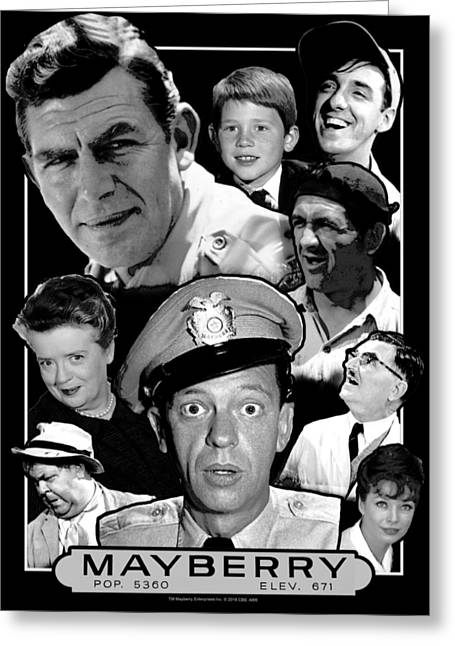 But showing a character’s personality without telling, also lets the reader develop their own relationship with that character rather than the author telling the reader how they should feel about them. In Mayberry RFD, no one tells the viewer that everyone loves Aunt Bea because she is kind, gentle, loving, thoughtful, the viewer gets to see Aunt Bea in action, supporting Andy, helping to rear Opie, interacting with townsfolk. We didn’t have to be told what kind of officer Barney Fife is, or that Otis has a problem with alcohol, we SEE them acting these characters out. That’s how I prefer to present my characters in my books. Not defining who they are, or what they are like in my own words but presenting them in a way the reader can see for themselves and form their own relationships with the characters. But showing a character’s personality without telling, also lets the reader develop their own relationship with that character rather than the author telling the reader how they should feel about them. In Mayberry RFD, no one tells the viewer that everyone loves Aunt Bea because she is kind, gentle, loving, thoughtful, the viewer gets to see Aunt Bea in action, supporting Andy, helping to rear Opie, interacting with townsfolk. We didn’t have to be told what kind of officer Barney Fife is, or that Otis has a problem with alcohol, we SEE them acting these characters out. That’s how I prefer to present my characters in my books. Not defining who they are, or what they are like in my own words but presenting them in a way the reader can see for themselves and form their own relationships with the characters.
XX
So, my answer to the second question is I try to leave it all to the intuition of the reader. I want the reader to care about my characters because of how I’ve presented them, not because I have to tell them they need to care. I hope there is nothing about my characters I have failed to reveal, however. But that’s just me. Hop on over and see how my fellow monthly Round Robin Blog Hoppers approach the subject.
 Connie Vines Connie Vines
Dr. Bob:
A.J. Maguire
Robin Courtright
Helena Fairfax
Saturday, September 10 2022
 As I write this, two things are on my mind. Tomorrow’s upcoming day of remembrance for all who lost their lives in the 9/11 attacks on our home turf by a fanatical regime dedicated to bringing America to her knees and the death just two days ago of a woman who embodied so much of what is good in this world. As I write this, two things are on my mind. Tomorrow’s upcoming day of remembrance for all who lost their lives in the 9/11 attacks on our home turf by a fanatical regime dedicated to bringing America to her knees and the death just two days ago of a woman who embodied so much of what is good in this world.
XX
Social media has been flooded by images, poems and memories of Queen Elizabeth II. For seventy years she reigned with grace, dignity and aplomb in a world filled with anger, hate and blame. While Britain is a democracy, still she represented all that was good about Britain's influence in our world. I 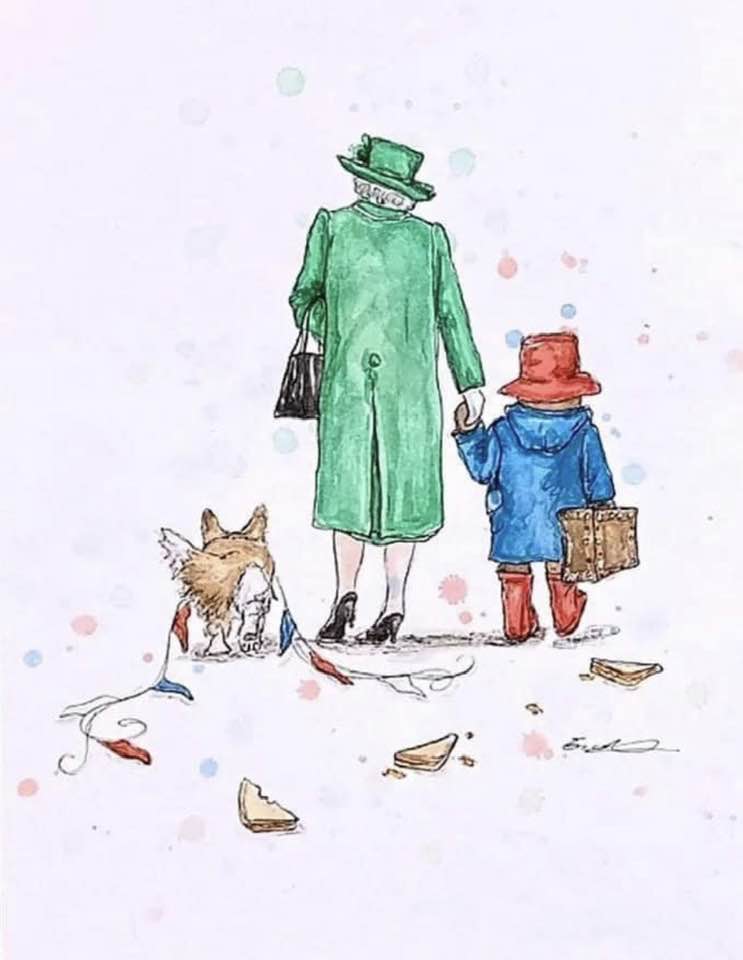 am old enough to remember when she became the queen. Although our family didn’t have a television yet I was aware of it through pictures in the local papers and discussions among my parents and their friends. And Queen Elizabeth II has been there, a quiet, yet influential part of our world ever since. I’m an American, so she isn’t technically, ‘my’ queen, and yet . . . It felt like she would always be there and now she is gone. Her son, Charles III sits in her place and only time will tell if he will grace the monarchy with the charm and poise his mother showed for so many years. From tea with Paddington, to visits of state, her beauty and wisdom showed through and touched all who had the good fortune to spend time in her presence. The closest I ever came was watching the changing of the guard outside Windsor Castle while she was actually in residence, and staying at the bed and breakfast housed in an old gatehouse attached to the castle grounds. But just knowing she was part of the world I enjoyed was a blessing. She will be mourned by millions and dearly missed. am old enough to remember when she became the queen. Although our family didn’t have a television yet I was aware of it through pictures in the local papers and discussions among my parents and their friends. And Queen Elizabeth II has been there, a quiet, yet influential part of our world ever since. I’m an American, so she isn’t technically, ‘my’ queen, and yet . . . It felt like she would always be there and now she is gone. Her son, Charles III sits in her place and only time will tell if he will grace the monarchy with the charm and poise his mother showed for so many years. From tea with Paddington, to visits of state, her beauty and wisdom showed through and touched all who had the good fortune to spend time in her presence. The closest I ever came was watching the changing of the guard outside Windsor Castle while she was actually in residence, and staying at the bed and breakfast housed in an old gatehouse attached to the castle grounds. But just knowing she was part of the world I enjoyed was a blessing. She will be mourned by millions and dearly missed.
XX
 So too, are thousands still missed who perished on September 11, 2001. Can it really be twenty-one years since that day? It sometimes feels like it was just yesterday. Working in an environment without outside connectedness, my son’s phone call was my first shocking realization of what was happening in New York, but very quickly the market closed and my company began streaming CNN onto our desktops. The reality of the attack, the utter devastation, the images So too, are thousands still missed who perished on September 11, 2001. Can it really be twenty-one years since that day? It sometimes feels like it was just yesterday. Working in an environment without outside connectedness, my son’s phone call was my first shocking realization of what was happening in New York, but very quickly the market closed and my company began streaming CNN onto our desktops. The reality of the attack, the utter devastation, the images  of those planes, of firemen rushing into buildings they would never come out of, people fleeing from waves of dust and later, the words overheard from the brave men on flight 93 who decided enough was enough. It all feels so fresh and real and awful, even all these years later. Maybe it's the harshness and raw hurt that stand out in our memories. I can only imagine my parents shock and disbelief on hearing FDR on the radio announcing a day that would live in infamy and how those words might have stuck in their minds for the rest of their years. Almost as if it were yesterday, I recall the stunned silence in the halls of my high school when we were dismissed early after our young and much loved president JFK’s assassination. These memories of lost innocence, however old we were when they happened, stand out in our souls as changing points in our lives. Social media will be awash once again with reminders of that awful day in September so recent to most of us and yet before all those in my grandchildren's generation were even born. I pray they will not be ripped so harshly from their naïveté as the generations before them. of those planes, of firemen rushing into buildings they would never come out of, people fleeing from waves of dust and later, the words overheard from the brave men on flight 93 who decided enough was enough. It all feels so fresh and real and awful, even all these years later. Maybe it's the harshness and raw hurt that stand out in our memories. I can only imagine my parents shock and disbelief on hearing FDR on the radio announcing a day that would live in infamy and how those words might have stuck in their minds for the rest of their years. Almost as if it were yesterday, I recall the stunned silence in the halls of my high school when we were dismissed early after our young and much loved president JFK’s assassination. These memories of lost innocence, however old we were when they happened, stand out in our souls as changing points in our lives. Social media will be awash once again with reminders of that awful day in September so recent to most of us and yet before all those in my grandchildren's generation were even born. I pray they will not be ripped so harshly from their naïveté as the generations before them.
XX
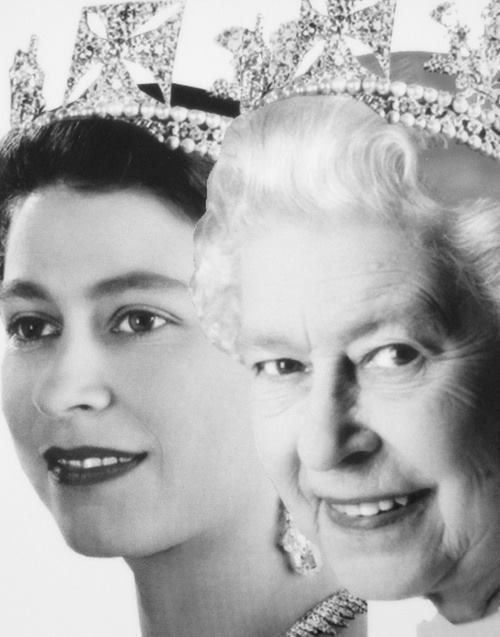 So today and in the days to come, I remember a Queen who reigned with charity and poise, through good times and bad, in the face of personal tragedy and national turmoil. God speed her soul and may God bless Charles who now wears the crown and has to live up to the example she set. So today and in the days to come, I remember a Queen who reigned with charity and poise, through good times and bad, in the face of personal tragedy and national turmoil. God speed her soul and may God bless Charles who now wears the crown and has to live up to the example she set.
 And God bless all those who still mourn the loss of husbands, wives, fathers, mothers, sisters, daughters, sons, brothers and friends who lost their lives 21 years ago and all those who stepped forward to serve since and paid the price. Freedom has never been free and I write this in honor of all those who paid that price. And God bless all those who still mourn the loss of husbands, wives, fathers, mothers, sisters, daughters, sons, brothers and friends who lost their lives 21 years ago and all those who stepped forward to serve since and paid the price. Freedom has never been free and I write this in honor of all those who paid that price.
XX
Take a moment, if you will, to be thankful for the blessings you have and to tell those who make your life the blessing it is, that you love and cherish them.
Friday, August 26 2022
 August’s Round Robin Blog topic is: How do you create your characters--their quirks, habits, values, and what part they will play in the story, etc.? Do you have a process or do they come to you instinctively? August’s Round Robin Blog topic is: How do you create your characters--their quirks, habits, values, and what part they will play in the story, etc.? Do you have a process or do they come to you instinctively?
XX
For me, the answer to this question is a mixed bag. Sometimes I create the characters to fit the plot that has taken over my imagination, other times the characters are born first and they drive the plot. And sometimes a character will just appear out of nowhere in the middle of a story, or be created when a need for such a character presents itself.
XX
 If I already have a plot, or at least an idea for a story, then the characters I create end up with habits, values, jobs and backgrounds to support their part in the story. When I wrote my time travel, I needed to give my time-traveling heroine a backstory that supported her understanding of the era in which she found herself, so she became a history teacher. When I was writing The Candidate, I needed my protagonist to have a career that would support his candidacy for president, thus he began his adult life as a soldier who returned to school to become a lawyer and then ran for a state house of representative seat before moving on the US Senate. When I needed a character who suffered PTSD and survivor guilt, I created a woman born to a single mom who went into the military service as a way to get a college education and ended up being sent to serve a few years in a war zone, while her husband and two sons waited back home. If I already have a plot, or at least an idea for a story, then the characters I create end up with habits, values, jobs and backgrounds to support their part in the story. When I wrote my time travel, I needed to give my time-traveling heroine a backstory that supported her understanding of the era in which she found herself, so she became a history teacher. When I was writing The Candidate, I needed my protagonist to have a career that would support his candidacy for president, thus he began his adult life as a soldier who returned to school to become a lawyer and then ran for a state house of representative seat before moving on the US Senate. When I needed a character who suffered PTSD and survivor guilt, I created a woman born to a single mom who went into the military service as a way to get a college education and ended up being sent to serve a few years in a war zone, while her husband and two sons waited back home.
XX
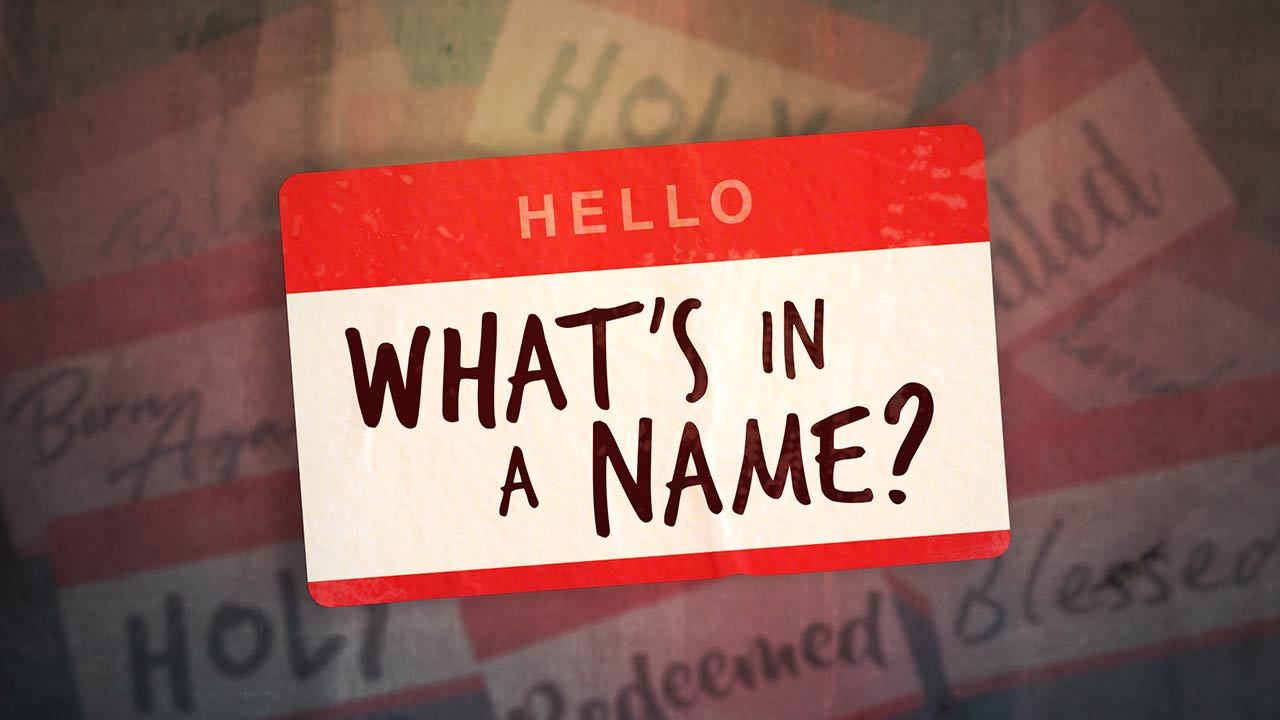 For the stories where the characters come first, I’m not sure I have a set method, but I usually start with a name which isn’t always as easy as you might think. This name will depend somewhat on what kind of a character I am creating. If he’s a pompous, egotistical person, his name needs to fit that image. In my current project I have such a character. He’s not my main character, but he’s pretty impressed with himself and I named him Malcolm Beauregard Riggs III, which he likes to use ALL of. No one would ever think of calling him Mal, or Beau, or even Riggs. His son, a very different sort of man, who happens to be my main character and bears the burden of being Christened Malcolm Beauregard Riggs IV is called Mac by one and all. I try not to stereotype my female characters so their names are chosen less for image and more for what sounds nice in combination with whatever surname she carries and has a convenient and pleasant nickname. For the stories where the characters come first, I’m not sure I have a set method, but I usually start with a name which isn’t always as easy as you might think. This name will depend somewhat on what kind of a character I am creating. If he’s a pompous, egotistical person, his name needs to fit that image. In my current project I have such a character. He’s not my main character, but he’s pretty impressed with himself and I named him Malcolm Beauregard Riggs III, which he likes to use ALL of. No one would ever think of calling him Mal, or Beau, or even Riggs. His son, a very different sort of man, who happens to be my main character and bears the burden of being Christened Malcolm Beauregard Riggs IV is called Mac by one and all. I try not to stereotype my female characters so their names are chosen less for image and more for what sounds nice in combination with whatever surname she carries and has a convenient and pleasant nickname.
XX
Once upon a time I was trying to be careful never to use a name possessed by a family member or friend, but then one of my granddaughters asked to have a character named after her. Now I’ve managed to include all of t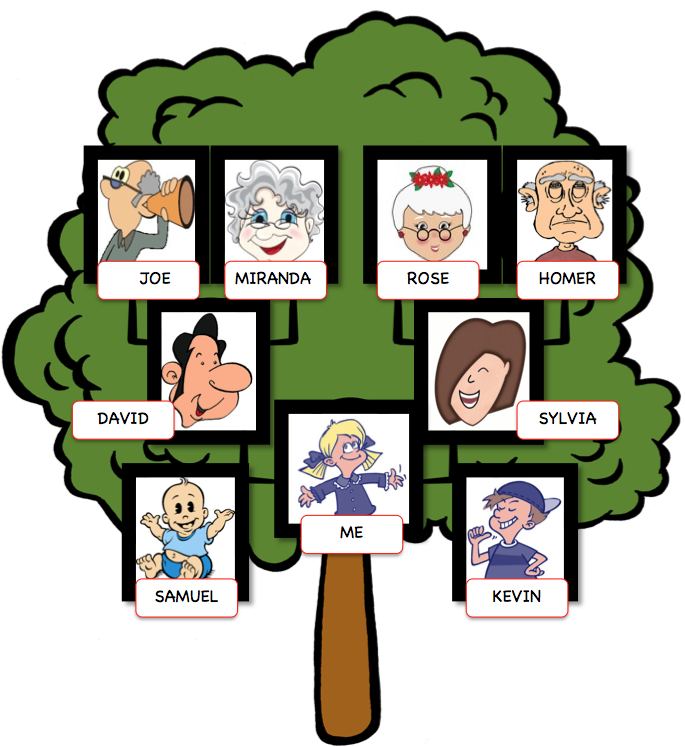 hem. I have lost two wee grandsons, one to SIDS and the other to a playground accident so all of my books now feature a Sam, Samuel, or Sammy and a Philip appearing somewhere, usually as secondary characters. I’ve also included two friends who were delighted to find they had namesakes in my books. I try to match names to the ethnicities, heritage, cultures and the time in history they inhabit. Nearly all my characters have a nickname that goes well with their surname. And if they have a significant other, they might also acquire a pet name. Another tip I got from several writers earlier in my writing career was not to have repetitive starting letters that can confuse the readers. Thus, the same story will not feature Anna, Andy, Amanda and Anthony (unless maybe he’s just called Tony.) And one last thing about names, if the character is simply a placeholder, who fills a needed function but isn’t that important in their own right, they are never given a name, but rather referred to as ‘the waiter, officer, doctor, his teacher or her secretary. hem. I have lost two wee grandsons, one to SIDS and the other to a playground accident so all of my books now feature a Sam, Samuel, or Sammy and a Philip appearing somewhere, usually as secondary characters. I’ve also included two friends who were delighted to find they had namesakes in my books. I try to match names to the ethnicities, heritage, cultures and the time in history they inhabit. Nearly all my characters have a nickname that goes well with their surname. And if they have a significant other, they might also acquire a pet name. Another tip I got from several writers earlier in my writing career was not to have repetitive starting letters that can confuse the readers. Thus, the same story will not feature Anna, Andy, Amanda and Anthony (unless maybe he’s just called Tony.) And one last thing about names, if the character is simply a placeholder, who fills a needed function but isn’t that important in their own right, they are never given a name, but rather referred to as ‘the waiter, officer, doctor, his teacher or her secretary.
XX
 So, now my character has a name. But they are as unformed as a newborn baby. They need to grow into the character that’s going to drive the plot. In my romances I needed to create two characters of equal importance who would be attractive to each other and yet possess some conflicting traits that they would have to overcome to find their happy ever after. In Trusting Will, my heroine was a war widow who had vowed never to get involved with a man who put his life in harm’s way on a regular basis. That hero turned out to be state motorcycle cop in an era where just wearing the uniform often means having a target on your back, never mind that his official unit only had two wheels. Sometimes it fits best if the character is an only child, but I also have a book on traits of So, now my character has a name. But they are as unformed as a newborn baby. They need to grow into the character that’s going to drive the plot. In my romances I needed to create two characters of equal importance who would be attractive to each other and yet possess some conflicting traits that they would have to overcome to find their happy ever after. In Trusting Will, my heroine was a war widow who had vowed never to get involved with a man who put his life in harm’s way on a regular basis. That hero turned out to be state motorcycle cop in an era where just wearing the uniform often means having a target on your back, never mind that his official unit only had two wheels. Sometimes it fits best if the character is an only child, but I also have a book on traits of  Birth Order which is interesting, all by itself, but offers insights into the differences between the way a first born, middle child or baby in the family approaches life in general or problems and roadblocks in specific, which is handy to know as your character runs into trouble. As my characters begin to take on personalities, they acquire careers that fit the needs of either the plot or the conflicts with other characters or both. Sometimes it’s handy to give them hobbies that fill a need in the story, like my grounded pilot who learned carpentry from his grandfather and is currently working on a construction crew, or my volunteer firefighter who ends up delivering a baby in the middle of a hurricane. Birth Order which is interesting, all by itself, but offers insights into the differences between the way a first born, middle child or baby in the family approaches life in general or problems and roadblocks in specific, which is handy to know as your character runs into trouble. As my characters begin to take on personalities, they acquire careers that fit the needs of either the plot or the conflicts with other characters or both. Sometimes it’s handy to give them hobbies that fill a need in the story, like my grounded pilot who learned carpentry from his grandfather and is currently working on a construction crew, or my volunteer firefighter who ends up delivering a baby in the middle of a hurricane.
XX
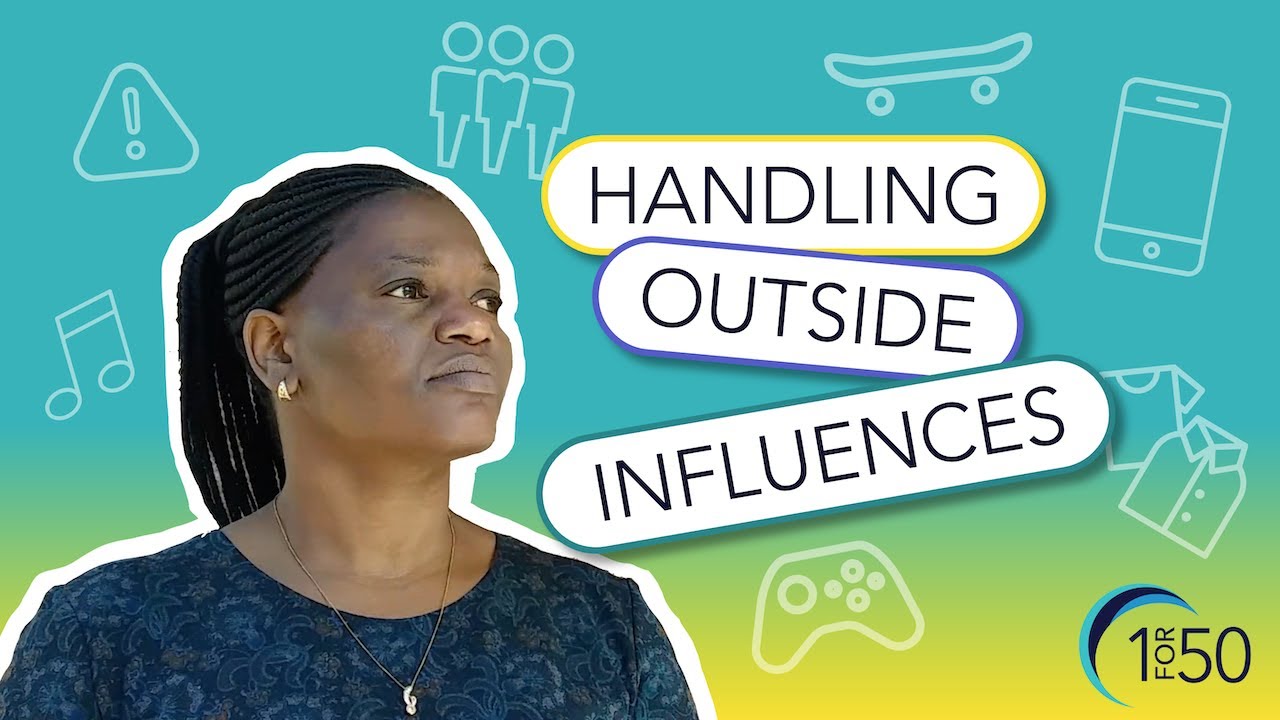 Sometimes it’s influences from outside that give a protagonist their drive and goals. Jesse Quinn, who idolized her dad, but was totally under her mother’s society matron thumb, did her best to be a model daughter and wife . . . until she discovered her ‘Model’ husband, chosen for her by her mom, had been cheating on her nearly from their wedding day. Even before the ink was dry on the divorce decree she doubled down, went to the police academy and followed in her father’s footsteps in spite of pressure from her mother, and is more than proud of the person she has become by taking charge of her own life and decisions. Sometimes it’s influences from outside that give a protagonist their drive and goals. Jesse Quinn, who idolized her dad, but was totally under her mother’s society matron thumb, did her best to be a model daughter and wife . . . until she discovered her ‘Model’ husband, chosen for her by her mom, had been cheating on her nearly from their wedding day. Even before the ink was dry on the divorce decree she doubled down, went to the police academy and followed in her father’s footsteps in spite of pressure from her mother, and is more than proud of the person she has become by taking charge of her own life and decisions.
XX
 And then there are those exceptional characters who just arrive on stage, totally unexpected until that moment and seem to create themselves. In Keeping His Promise, a secondary character, running for mayor wanted the town to turn an old run-down plantation willed to the town into a half-way house for young men who’d gotten into trouble with the law but wanted to get squared away when they finished serving their time, yet had nowhere to go and no job offers. My heroine was a reporter with a ‘Not-in-my-backyard’ philosophy. Part of the conflict in this romance was the hero is a small-town cop who thought the half-way/second chance house was an excellent idea. Then, out of nowhere comes Lucas Trevlyn, name and all, who was introduced to our reluctant heroine as the man who would be running this halfway house. He arrived on the scene complete with a history that backed up his credentials and he was so charming he won over both me and my heroine. He was such a compelling character in that book, I am now writing his story which will be out next year. And then there are those exceptional characters who just arrive on stage, totally unexpected until that moment and seem to create themselves. In Keeping His Promise, a secondary character, running for mayor wanted the town to turn an old run-down plantation willed to the town into a half-way house for young men who’d gotten into trouble with the law but wanted to get squared away when they finished serving their time, yet had nowhere to go and no job offers. My heroine was a reporter with a ‘Not-in-my-backyard’ philosophy. Part of the conflict in this romance was the hero is a small-town cop who thought the half-way/second chance house was an excellent idea. Then, out of nowhere comes Lucas Trevlyn, name and all, who was introduced to our reluctant heroine as the man who would be running this halfway house. He arrived on the scene complete with a history that backed up his credentials and he was so charming he won over both me and my heroine. He was such a compelling character in that book, I am now writing his story which will be out next year.
XX
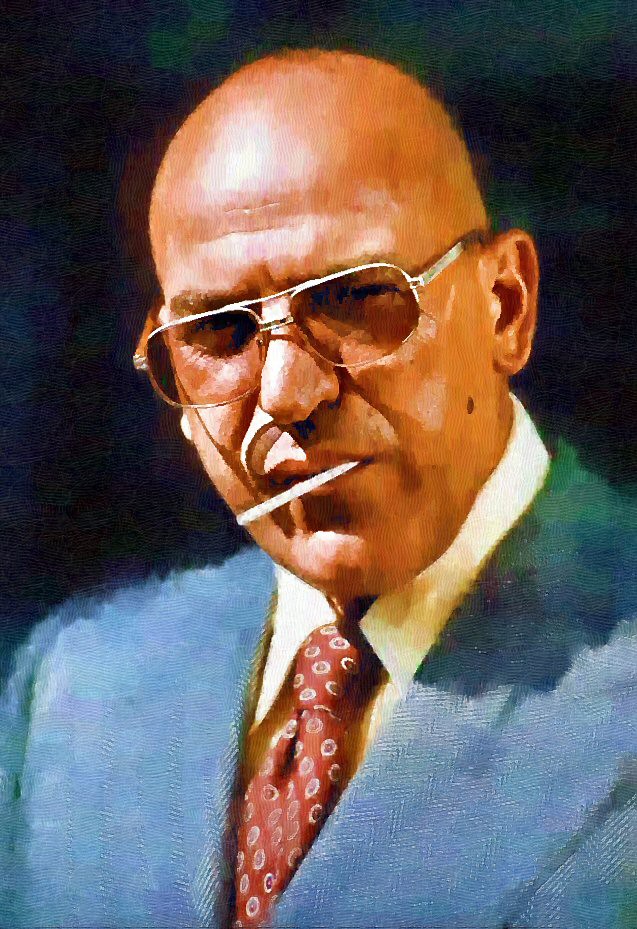 Bottom line, your characters must fill the needs of the story-line, while being real. Heroes with no faults are as boring as white hospital sheets. All your characters, both good guys and bad, need to possess both positive and negative traits. They say even mob enforcers love their moms. Give your characters a quirk or two to make them memorable, Bottom line, your characters must fill the needs of the story-line, while being real. Heroes with no faults are as boring as white hospital sheets. All your characters, both good guys and bad, need to possess both positive and negative traits. They say even mob enforcers love their moms. Give your characters a quirk or two to make them memorable, 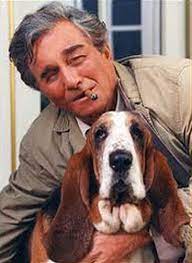 like Kojak who always had a tootsie pop in his mouth. Or Columbo with his habit of having just one more question. A writer should be a people watcher. The world is full of ideas everywhere you go: The whiny toddler at the grocery store who has a frazzled mom, the biker who goes out of his way to retrieve a ball and toss it back into the game. The way people treat their pets, their spouses, their cars. Their attitude toward their jobs and the cop who pulls them over for speeding. Everywhere there are people, there are ideas you can stow away to enhance the creation of your characters to make them real, memorable, loveable – or hateful, and different. like Kojak who always had a tootsie pop in his mouth. Or Columbo with his habit of having just one more question. A writer should be a people watcher. The world is full of ideas everywhere you go: The whiny toddler at the grocery store who has a frazzled mom, the biker who goes out of his way to retrieve a ball and toss it back into the game. The way people treat their pets, their spouses, their cars. Their attitude toward their jobs and the cop who pulls them over for speeding. Everywhere there are people, there are ideas you can stow away to enhance the creation of your characters to make them real, memorable, loveable – or hateful, and different.
XX
Now you can hop on over to see how these authors approach the creation of characters.
XX
Connie Vines
Fiona McGier
Dr. Bob Rich
Anne Stenhouse
Robin Courtright
Saturday, July 30 2022
July’s Round Robin asks us about the inspiration behind our characters. Have we ever killed any characters, cut some of them out of our stories and how do we go about naming them. And what about troubling scenes?
XX
 Well, considering I’ve already published one mystery and have another in the works, I have to say yes to killing some of my characters. Kind of a requisite for a murder mystery. But there’s also the old saw in mysteries, “If your middle is sagging, kill someone.” And, yes, I’ve used that strategy, too. But so far, I’ve never killed one of my good guys. And, of course, I’d never kill the dog. That’s a quick way to kill what might have been a blockbuster story. Well, considering I’ve already published one mystery and have another in the works, I have to say yes to killing some of my characters. Kind of a requisite for a murder mystery. But there’s also the old saw in mysteries, “If your middle is sagging, kill someone.” And, yes, I’ve used that strategy, too. But so far, I’ve never killed one of my good guys. And, of course, I’d never kill the dog. That’s a quick way to kill what might have been a blockbuster story.
XX
 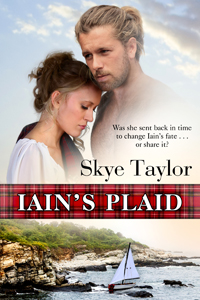 As for inspiration, my characters are a very mixed bag. One was inspired my one of my own adventures so I guess I’d have to confess there was some of me in her. Intrigued by the history of the Maine Islands that preceded the arrival of the Pilgrims in Plymouth Mass, I sailed out to one I could see from my home on the shore. It was no longer occupied but I wanted to explore the ruins. And my writer’s brain kicked in on the way home to ask the question, “What if I’d fallen into that old cellar hole and woken up in a different century?” So that was the inspiration for the story and the heroine. As for inspiration, my characters are a very mixed bag. One was inspired my one of my own adventures so I guess I’d have to confess there was some of me in her. Intrigued by the history of the Maine Islands that preceded the arrival of the Pilgrims in Plymouth Mass, I sailed out to one I could see from my home on the shore. It was no longer occupied but I wanted to explore the ruins. And my writer’s brain kicked in on the way home to ask the question, “What if I’d fallen into that old cellar hole and woken up in a different century?” So that was the inspiration for the story and the heroine.
XX
 My mystery heroine was a mixture of two wonderful deputies I met and got to know with our local sheriff’s office. My character was very much a fiction, but she was inspired by these two wonderful women in law enforcement. Many of my heroes are creations inspired by what I personally find attractive in a man, but one of the most intriguing heroes I wrote, walked onto the stage about 2/3 of the way through one of my series books, sat down and introduced himself, almost out of nowhere. I had realized I needed to have such a character appear, but having him just show up, so vivid and real, was a delightful surprise. He was a secondary character in that book, but reappeared in the book I just finished that will be out later this year and at the moment, I am writing his own book where he is the main character. I have no idea what inspired him. He has a troubled past, and perhaps his having overcome that is what is intriguing about him. My mystery heroine was a mixture of two wonderful deputies I met and got to know with our local sheriff’s office. My character was very much a fiction, but she was inspired by these two wonderful women in law enforcement. Many of my heroes are creations inspired by what I personally find attractive in a man, but one of the most intriguing heroes I wrote, walked onto the stage about 2/3 of the way through one of my series books, sat down and introduced himself, almost out of nowhere. I had realized I needed to have such a character appear, but having him just show up, so vivid and real, was a delightful surprise. He was a secondary character in that book, but reappeared in the book I just finished that will be out later this year and at the moment, I am writing his own book where he is the main character. I have no idea what inspired him. He has a troubled past, and perhaps his having overcome that is what is intriguing about him.
XX
 Some of my characters have been named after friends who are delighted to find themselves in my books. While the characters themselves are not mirrors of my friends, they possess some of the traits that make these friends special. My teen and child characters are inspired by memories of my own kids growing up and my current grandchildren. In fact, I have used a couple of my teen-age granddaughters as resources for likes, language, favorite bands, dress etc. Since it’s been an age since I was a teen and the world has changed dramatically, consulting with my grands has made my teen-age characters more authentic. Some of my characters have been named after friends who are delighted to find themselves in my books. While the characters themselves are not mirrors of my friends, they possess some of the traits that make these friends special. My teen and child characters are inspired by memories of my own kids growing up and my current grandchildren. In fact, I have used a couple of my teen-age granddaughters as resources for likes, language, favorite bands, dress etc. Since it’s been an age since I was a teen and the world has changed dramatically, consulting with my grands has made my teen-age characters more authentic.
XX
 Getting just the right name for my characters is one of my sticking points. First off, I follow the general smart idea of not having too many names for a reader to remember and definitely not a bunch that all start with the same letter. My stories include men and women from all races, faiths, nationalities and ethnicities so I look for names that fit. I’ve also checked the Social Security site for the most popular names in a given year. Gone With the Wind features a male character named Ashley, but that wouldn’t fly in a contemporary story, so checking to see what people were naming babies in any given era is another way to pick names. Getting just the right name for my characters is one of my sticking points. First off, I follow the general smart idea of not having too many names for a reader to remember and definitely not a bunch that all start with the same letter. My stories include men and women from all races, faiths, nationalities and ethnicities so I look for names that fit. I’ve also checked the Social Security site for the most popular names in a given year. Gone With the Wind features a male character named Ashley, but that wouldn’t fly in a contemporary story, so checking to see what people were naming babies in any given era is another way to pick names.
XX
But then I’m into making sure my nicknames fit, both with the last name and with the character. I’ve been known to change the character’s name once I get writing and discover it just doesn’t seem to fit the character who is emerging in the story. I say the names  out loud both the full name and the nickname with the last, to make sure it’s both memorable and flows smoothly. Occasionally I give a character a name deliberately difficult for effect. In the book I just finished writing my hero, everyone calls Mac, is actually Malcolm Beauregard Riggs IV. His father is an arrogant, egotistical attorney who likes being called Malcolm Beauregard Riggs III and because there is no love lost between them, Mac has always been Mac. In my mystery, everyone calls my female detective Jesse, because she has done her best to divorce herself from the debutant world her mother brought her up in along with her former life as dutiful, subservient wife. Only her Ex and her mother call her Jessalyn, which never fails to irritate my heroine. out loud both the full name and the nickname with the last, to make sure it’s both memorable and flows smoothly. Occasionally I give a character a name deliberately difficult for effect. In the book I just finished writing my hero, everyone calls Mac, is actually Malcolm Beauregard Riggs IV. His father is an arrogant, egotistical attorney who likes being called Malcolm Beauregard Riggs III and because there is no love lost between them, Mac has always been Mac. In my mystery, everyone calls my female detective Jesse, because she has done her best to divorce herself from the debutant world her mother brought her up in along with her former life as dutiful, subservient wife. Only her Ex and her mother call her Jessalyn, which never fails to irritate my heroine.
XX
 And then there are the pet names. Given that my series is contemporary romance, there are always pet names used and I don’t like to be repetitive so thought goes into what lovers call each other, too. Even the pets who appear in my stories get thoughtfully chosen names depending on how I want the pet to impact the story. Seamus is a fat, self-satisfied cat who reigns supreme in his world, and Murphy is an inquisitive half-grown golden retriever who has a knack for finding trouble. And then there are the pet names. Given that my series is contemporary romance, there are always pet names used and I don’t like to be repetitive so thought goes into what lovers call each other, too. Even the pets who appear in my stories get thoughtfully chosen names depending on how I want the pet to impact the story. Seamus is a fat, self-satisfied cat who reigns supreme in his world, and Murphy is an inquisitive half-grown golden retriever who has a knack for finding trouble.
XX
 We were asked to blog about one of a list of writerly things and I’ve covered most of them. I’ll let some of my other Blog Hoppers discuss cutting scenes and characters. (I do it, but usually during edits when I realized a scene has no impact on the overall story. Same as I’ve eliminated characters that also end up having no real role. Best to dump the stuff that slows the action and brings nothing to the table.) We were asked to blog about one of a list of writerly things and I’ve covered most of them. I’ll let some of my other Blog Hoppers discuss cutting scenes and characters. (I do it, but usually during edits when I realized a scene has no impact on the overall story. Same as I’ve eliminated characters that also end up having no real role. Best to dump the stuff that slows the action and brings nothing to the table.)
XX
Marci Baun
Helena Fairfax
Dr. Bob Rich
Anne Stenhouse
Judith Copek
Rhobin L Courtright
|